2024 was a truly global election year, with voters in much of the world, including Japan, harshly rebuking incumbents at the ballot box. A perfect example is the G7 which held its Summit in Italy in June 2024. Just a few short months later, three of the leaders who attended, Joe Biden of the United States, Fumio Kishida of Japan, and Rishi Sunak of the United Kingdom, had all been forced out of office, while three of those who remained, France’s Emmanuel Macron, Germany’s Olaf Scholz, and Canada’s Justin Trudeau struggle with record low approval ratings. Of course, the most potent symbol of such voter frustration was Donald Trump’s victory over Kamala Harris in the 2024 United States Presidential Election, the first time in 132 years that a US president has secured a non-consecutive second term.
On the surface, the driving factor behind this trend can appear to be rooted in the unique domestic social, economic, and political problems facing each individual country, such as high inflation, illegal immigration, and perceived corruption. However, the international nature of this electoral phenomenon hints at it being driven by larger overarching trends . The global order crafted and led by the United States in the aftermath of World War II, was a package deal that depended on a model of national political and economic development mirroring that of the manufacturing powerhouse that was the United States. The rejection of the post war international order’s standard bearers even amidst wars in both Ukraine and the Middle East, demonstrates just how disconnected they are viewed as being across both domestic and foreign policy. Ultimately the move from industrial societies to financialized information economies, combined with factors such as population aging, climate change, and the economic rise of countries outside the political west has put intense structural pressure on the old order, and as it begins to crack, voters increasingly reject the status quo.
The administration of Donald Trump, a voracious critic of both modern America and the post war international order will inevitably accelerate the effort to see that order dismantled. While this inevitably carries enormous risks, the destruction of the existing international order is perhaps no longer avoidable. 2025 will thus be a year in which humanity will be tested, if we are to avoid catastrophe, our capacity for destruction must be matched by a willingness to engage in the difficult task of rebuilding a changed international order.
The 2024 United States presidential election ended in a stunning total victory for Donald Trump and the Republican Party. This result surprised even many seasoned observers of US politics, hinting at a degree of societal upheaval far greater than most had imagined. For the Democratic Party, regaining power will inevitably require rebuilding itself and its policies from the ground up, with a focus on the most relevant issues and the challenges its supporters—whom the party have long taken for granted, such as working class and minority voters—are now facing. The Republican Party, meanwhile, must now turn its focus to figuring out what the voters expect out of the party in exchange for their vote.
A failure by either party will further fuel the deep discontent over living standards, unhealthy concentration of wealth and power, and mutual distrust that is driving Americans apart, while exacerbating political gridlock, and fermenting increasingly vitriolic tones of elections marked by hollow victories.
Amidst the decline of American democracy, and the society that supports it, it is critical that Japan, which has long depended on its alliance with the United States for its security, develop both the political will and the capacity to develop and pursue its own strategy and policies. Japan must not give in to the rising tide of antidemocratic authoritarian forces, anti-immigrant sentiment, and cynicism sweeping not only the United States, but much of the world, and instead stand strong in proactively defending pluralist democratic values. Democracy, constitutionalism, and the rule of law are not just pretty words, and they are also clearly not a given, but are rather like a living organism whose needs and health must be considered if it is to be maintained. Here, we can learn much from the Nobel Peace Prize-winning ‘Nihon Hidankyo,’ or Japan Confederation of A- and H-Bomb Sufferers Organizations, about refusing to compromise on what is right, and speaking truth to power. In 2025, as Japan marks the 80th anniversary of the end of World War II, it is more important than ever to reflect on what we gained in defeat, and the foundations of the country’s remarkable postwar peace and prosperity.
The current era is increasingly one of division, both between and within countries, as well as throughout regions, and worldwide. However, the primary divide is not over economic prosperity, political systems or even policies. Rather, it is a more insidious break in how people fundamentally see and understand the world, leading to divergences in how they view every issue. It is not a clean division between two ideologies, but rather an infinitely diverging morass of positions on each individual issue, often bereft of unifying features or underlying logic. Amidst the emergence of such deep-seated and diversified divisions of worldview, we have entered an age in which consensus is almost impossible to achieve.
This can be seen in the way that different countries frame geopolitics. Japan and most other developed countries tend to see the primary axis of confrontation being between developed countries on the one side opposing China, Russia, Iran, and North Korea on the other, with the Global South caught in the middle. China, however, rejects this framing, instead arguing that the main axis of confrontation is between developed and developing countries, with China courageously standing up for the latter. Of course, the individual countries of the “Global South,” and the “Islamic World,” also have their own way of viewing the world. For example, while condemnation of the United States role in the war in Gaza is near universal across Muslim-majority countries, including non-Arab countries such as Malaysia and Indonesia, on other issues these countries are divided and rarely speak with one voice.
Since the Russian invasion of Ukraine in 2022, Japan has doubled down on a policy of strengthening its alignment with the United States and like-minded democracies. Setting aside the pros and cons of this approach, Japan’s unique position within East Asia, and its status as the only non-Western G7 member, undoubtedly demand a decision-making process that is both strategic, and flexible. In 2025 and the years ahead, the global political situation is undoubtedly only going to grow more unstable. As the era of division spreads and consensus evaporates, Japan must ask how it can overcome these fissures and find a way to build bridges across the numerous divisions in the world. For that to happen however, Japan must be flexible, and strategic, instead of constraining its policy making with outdated conceptions of a long past bipolar world order.
In 2025, the world is once again faced with a Trump Presidency in the United States.
It is not difficult to imagine that behind the rise of Trump, who espouses slogans such as “America First” and “Make America Great Again,” lies a deep well of discontent and distrust in the seemingly unchanging systems and world order, that have for so long been dominant, but for so many, no longer seem to be working.
“America First,” is at its core an ideology of resentment, that sees the United States as having been “taken advantage of” by other countries which free ride on its commitment to ensuring global peace and prosperity, allowing their own citizens to prosper while those of the United States must make sacrifices.
This inevitably leads to a fixation geopolitically, on reducing commitments abroad, asking what allies can do for America, and insisting that those allies increase their defense budgets, while pursuing a protectionist economic policy through tariffs that will supposedly revive American manufacturing, safeguard America’s workers, and eliminate its budget deficit. Simultaneously, the creed of “Make America Great Again” demands that America be unquestionably number one, and that its global hegemony remain unchallenged, particularly regarding emerging technologies. This will undoubtedly worsen the zero-sum competition between the US and China, and increase the risk of outright conflict.
However, that isn’t to say there is no reason for limited optimism. A leader unbound by the conventional wisdom, the rules and principles that guide international institutions and more democratically minded leaders, can perhaps bring a unique, albeit likely blunt force approach to issues those leaders have struggled to manage, such as the increasingly stalemated war in Ukraine, or China’s hegemonic incursions against its neighbors in the South China Sea.
Amidst the great uncertainty of what Trump 2.0 will bring, what is unquestionable is that for better and for worse, this is not the Trump of 2016, and anyone who assumes it will be is in for a rude awakening. Trump enters office in 2025 as a confident figure, with four years of experience under his belt, the memory of his first term fresh, a better understanding of what he can achieve, knowledge of how to push past and dismantle institutional limits, and a developed political machine that is prepared to reshape Washington to enact his will without question.
Russia’s “implicit social contract” is often cited as critical element explaining the surprising resilience of the Russian regime domestically. In exchange for stability and the protection of their livelihoods, Russians quietly pledge their obedience to the regime, and refrain from questioning its actions.
This phrase first came into the parlance of Russian Studies during the Brezhnev era in the Soviet Union. It emerged in response to the question of why Soviet citizens continued to quietly accept authoritarian rule without dissent, in spite of the repressive apparatuses of the Soviet Union being significantly more restrained than under Stalin. Western Scholars noted that Soviet citizens appeared to be in a reciprocal relationship with the state in which they provided their unquestioned loyalty, and in return the state secured their livelihoods through the provision of employment, income, social services, housing, and consumer goods.
Following Putin’s rise to power in Russia, the country has once again begun to resemble the Soviet era. Authoritarianism rises unchecked and freedoms are stripped away, yet the majority of citizens tacitly accept the regime. To many, this suggested that the explanatory power of the concept of a Russian implicit social contract remained alive and well. Putin’s reign has been marked by improving economic conditions, dovetailing with the idea that the Russian people are trading their support of the regime in return for being able to maintain a certain degree of economic prosperity.
While the idea of an implicit social contract can perhaps explain the quiet acquiescence of Russia’s citizens to Putin’s whims, for Putin, there is inevitably a catch, which is that, if Russians no longer feel he can guarantee them an acceptable standard of living, he may well lose their support. In fact, the fall of the Soviet Union was also preceded, and inevitably exacerbated by, a collapse in public faith in the Soviet social contract. For the moment, the Putin regime appears to be narrowly maintaining public support under the banner of war, but for how long the delicate balance can be maintained remains to be seen.
What does the year 2025 have in store for the world? If nothing else, with the advent of the second Trump administration in the United States, we can safely assume it will be a year of marked uncertainty. Donald Trump, with his “America First” ideology and disdain for the existing rules-based international order, will undoubtedly engage in the unrestrained pursuit of what he views as being in the American national interest.
Of all the risks inherent to such an approach, perhaps none is more worrying than its potential to aggravate the preexisting conflict in, and deterioration of, the relationship between the United States and China. During the first Trump administration, the United States Government not only placed punitive tariffs on Chinese imports but took the unprecedented step of sanctioning Chinese high-tech companies, beginning with Huawei.
Donald Trump’s electoral victories have already affected a massive and sudden change on international trade and cross-border investment, supercharging the efforts of multinational corporations to diversify their supply chains away from China and toward other emerging countries. At this point, it is clear that the decoupling of the United States and Chinese economies is now unavoidable.Amidst this turmoil and uncertainty, there is an urgency in Japan regarding how it can manage global risk and reorient its strategy in 2025. While there is undoubtedly a strong logical case for ending Japan’s economic over-reliance on China, a Japan-China decoupling is at this moment, unrealistic.
The three years following the emergence of the COVID-19 pandemic in 2020 saw a marked slowdown in the growth of the Chinese economy. In response, Chinese policymakers have attempted to pursue a raft of measures, including greater cooperation with Japan. However, the preexisting challenges in the relationship between the two countries have proved increasingly intractable. From the Japanese government’s continued release of treated radioactive water from the Fukushima Daiichi Nuclear Plant to the arrest of Japanese nationals in China over dubious national security claims, the relationship is plagued by many problems and no easy solutions.
The Japan-China relationship of years past was built on people-to-people diplomacy. Unfortunately, amidst the transition to a new generation of leaders in both countries, there is now a disappointing and ironic lack of people who can be depended upon to responsibly manage this relationship. From the Chinese perspective, Japan can be perceived as an unfriendly country that is a US ally. However, for both countries, the continued deterioration of their relationship is likely to be a harbinger of instability, bringing with it a significant increase in geopolitical risk. Thus, the Ishiba government in Japan’s expressed desire to seek greater dialog with China is a welcome reprieve that one can only hope can begin to outline the contours of a new Japan-China relationship.
Amidst the global election year that was 2024, the results in Europe, particularly in the United Kingdom, were notable for the marked decline in support for mainstream political parties, and the continued meteoric rise of anti-immigrant far-right parties.
While the United Kingdom saw its first transition of power in 14 years, with Labour taking the reins of government, the transition took place against a backdrop of declining support for both Labour and the Conservative, the two main political parties, and the rise of the far-right Reform UK party. The end of Conservative rule in the United Kingdom was brought about by voters who had finally had enough with the party’s policy failures and scandals and no longer trusted it to govern. While the Labour Party managed to ride voter anger to secure a resounding 63% majority of parliamentary seats, that majority is built on shaky foundation, with the party securing the lowest share of the vote total ever recorded for a single ruling party, and the disparity between a public opinion that is increasingly divided across multiple parties, and the number of seats secured by each party being larger than ever. By November, the approval rating for the new Starmer administration had already fallen dramatically to just 23%, with Nigel Farage the leader of Reform UK, which has just five seats in parliament, taking the lead in popularity.
The governing party in any democracy is always hamstrung by the dilemma of needing to be both responsive to voter desires, yet responsible to real world constraints. Starmer has attempted to portray himself as just such a responsible leader to the British people, seeking to balance increased investment in public services with a promised reconstruction of British state finances, while also hardening British immigration and refugee policies in response to increasing popular support for the anti-immigrant far-right. However, across almost all fronts, this balancing act has backfired. His attempts to counteract the country’s massive deficit and balance the budget through increased taxes have resulted in his administration taking intense, sustained fire from business leaders, independent farmers, and the upper class, while his attempts to placate the anti-immigrant sentiment with tougher policies have only emboldened Farage’s Reform UK. Meanwhile, his decision to pull back on policies aimed at promoting pluralism and combatting climate change have alienated liberal Labour supporters in urban areas, many of whom have drifted toward Liberal Democrats and the Green Party. This isn’t surprising; research on democratic politics suggests that the path to expanding support for a center left party lies not in pandering to conservatives, but in a return to and focus on core liberal values such as promoting equality. It has become increasingly clear that people become more willing to support extremist parties when they experience socioeconomic “status anxiety.”
Thus, the question facing today’s center-left parties then is whether their traditional blend of policies aimed at promoting social welfare while facilitating economic growth is still able to relieve such anxiety and generate what American political philosopher John Rawls termed the “social bases of self-respect.” From reconstructing government finances and addressing the inadequacies of the current social welfare system, to navigating the difficulties of a declining labor force and increased immigration, the challenges currently bedeviling the Starmer government in the United Kingdom will all eventually come to Japan in full force. Thus, Japanese policymakers would do well to take note of the successes and failures of center left politics and the Labour Party in the United Kingdom.
On January 20, 2025, Donald Trump returned to the office of President of the United States. Opinions are divided on his stance toward groups such as immigrants and LGBT people, and much of the policy agenda of his second term remains shrouded in mystery. What is almost certain however, is that Trump’s return to office will see America turn its back on the kind of multilateralism that has long been a cornerstone of American foreign policy in favor of his mercurial “America First” agenda, and this will undoubtedly deal another heavy blow to the already reeling rules-based liberal international order.
This isn’t to say that the existing rules-based international order is perfect, far from it, nor that its decline is due solely to the emergence of populists like Trump. Global trust in its principles had undoubtedly declined amidst both the deliberate challenge posed by the actions of authoritarian countries like China and Russia, and the inconsistent and seemingly arbitrary way in which even the United States and Europe, its strongest promoters, applied its purported rules. Ultimately, the reality is that power politics is still very much a part of international relations. Still, if even the veneer of a rules-based international order can no longer be maintained, the world will see what it truly means to slide back into an era in which “the strong do what they can, and the weak suffer what they must.” Such an outcome poses an acute danger for a country like Japan, which possesses only limited military capacity, and which is wholly reliant on trade for access to resources and food.
While its relationship with the United States will undoubtedly continue to be of the utmost importance, Japan must do all that it can to protect and extoll the virtues of the rules-based international order to refuse unreasonable and exorbitant demands. Japan must double down on enhancing cooperation with not only rules-based organizations such as the European Union, and like-minded developed countries such as the United Kingdom, but also with the countries of the Global South, which have the most to lose from a world of belligerent, unrestrained great power politics. This will undoubtedly prove a challenging test for Japanese diplomacy in the years ahead.
The decline of the international order is cause for great alarm. Not only is the risk of outright military aggression and coercion by authoritarian countries and actors rising, but so too, are the challenges posed by economic coercion through trade restrictions, and disorder and discord fermented by the spread of disinformation through cyberspace, all of which increase the geopolitical risk involved in constructing economic policy, and exploit weaknesses of rule-abiding democratic countries.
All of this speaks to the urgent need to strengthen economic security. Of course, the most powerful weapon, and the surest deterrent in the economic security realm is the accumulation of economic power itself, to the greatest extent possible. Beyond that, lies the maximization of national interest through an appropriate calibration of the balance between freedom and regulation. Japan stands firmly on the side extolling the virtues of expanding free trade, with minimal reliance on regulation and a focus on positive incentives.
Taking a bird’s-eye view of the Japanese economy, the biggest hurdle is undoubtedly the need to raise productivity. Japan’s economic policy must be shifted to a greater focus on the supply side and the strengthening of industrial policy. If Japan’s government wishes to see the locus of Japanese investment shift back to Japan from overseas, it too, must show that it is ready and willing to make big investments in Japan. The industrial policy must be bold, precisely because Japan has been trapped in an era where supply constraints pose a greater challenge than insufficient demand. In doing so, Japan must work pursue a proactive economic security policy that fortifies industries exposed to geopolitical risk and potentially subject to economic coercion through measures such as strengthening supply chains through expanded international cooperation with like-minded countries and the rationalization of trade and investment management policies through enhanced public-private cooperation. A market will never attract investment unless investors believe it is safe and secure.
However, the primary actors responsible for ensuring a safe and secure market are private companies and research organizations. In this regard, economic security is fundamentally different from national security, where state organizations such as the National Security Secretariat, Ministry of Defense, and Ministry of Foreign Affairs play the leading role. Of course, international cooperation, in which both the public and private sectors play key roles, is also an important component of economic security. It is from this perspective that efforts to outline an economic security must be drawn, and a vision for a national economic security policy defined, shared, and ultimately pursued.
The year 2025, which began with the inauguration “Trump 2.0,” will undoubtedly see the global economy continue to fracture ad globalization’s unwinding accelerates. Compared to the first Trump administration, US partners and allies are now even more likely to find themselves in the crosshairs of Trump 2.0’s Tariff policies. Many of them, from neighboring Mexico to the European Union, and Southeast Asian countries like Vietnam, have seen their trade surplus with the US increase in recent years, making them ripe targets for the Trump administration’s efforts to reduce the US trade deficit. It is worth noting here that in contrast to other US allies, Japan’s trade balance with the US remains relatively unchanged since Trump’s first term, while the trade surplus of Trump bogyman China has actually decreased.
The EU, hoping to avoid an escalatory cycle of tit for tat reciprocal tariffs, has responded to Trump 2.0’s attempt to extract concessions via tariff threats with a focus on negotiations, hoping to find room for compromise. Given the reliance of European states on their alliance with the United States for their national security, and on access to the US market for the success of their companies, it is only natural that Europe would first seek to find ways to accommodate US demands. However, Trump 2.0’s willingness to deploy coercive economic measures like tariffs in pursuit of his newfound desire to annex the Panama Canal and Greenland, the autonomous territory of Denmark, while also refusing to disavow the potential use of military force in those pursuits, highlights the difficultly of accommodating his ever-expanding megalomania. While conflict should ideally be avoided, some problems cannot be easily resolved by diplomacy and negotiation alone.
Ultimately, many US allies will be forced to stand up against Trump 2.0, and doing so successfully will require three main things. First, they must collaborate with allies, partners, and like-minded countries to increase their collective bargaining power vis a vis-á-vis the United States. Second, they must deepen their relationships with the countries of the Global South to better cooperate on upholding the rules-based system of international free trade, which can reduce the risks of Trump 2.0’s destructive policies. Third and finally, they should use the impetus of Trump 2.0 to rectify their own domestic structural problems and ensure they and their citizens are maximizing the benefits they can enjoy under the global systems of free trade and investment.
At the time of this volume’s writing, on the eve of Trump’s second inauguration, it is difficult to say what exactly his reelection has in store for us. What is certain however, is that Trump will undoubtedly wave the specter of tariffs, and in light of that, we should remember the following three points.
First, we can expect that forthcoming US actions will not only worsen geopolitical tensions with China in accordance with the logic of international relations but will also seek to intertwine them with a protectionist trade policy that includes elements of economic coercion. Wherever possible we must seek to divorce matters of national security from those that should be understood solely through the lens of economics or commercial policy.
Second, while tariffs can be powerful mechanism for regulating trade, they are also a simple, blunt instrument whose economic impact is transparent and easy to see. For example, if the United States attempts to apply different tariff rates across different countries for the same good, we can use a simple three country international trade model to see how businesses will simply overhaul their supply chains, using free trade agreements to minimize the impact of the tariffs. Unreasonable, discriminatory trade policy built on faulty logic will ultimately not be able to stand up to the cold hard logic of the market mechanism, which will quickly work to offset its impact. Maintaining the dynamism of the global economy will require countering the negative trade creation effect caused by higher tariffs through a dogged pursuit of positive trade diversion effects.
Third and finally, the most frightening possibility is the potential for a complete collapse of the global trading order. It is unfortunately not possible to prevent the United States under Trump from wantonly violating the rules of global trade. However, other countries should still attempt to follow the rules of and maintain the existing global trade order to the best of their ability. From an economic security standpoint, countries should attempt to follow the strategy of having “small yard, high fence,” that is to say, a strong economy that restricts only the most sensitive items, seeking to maintain as broad, open and free an environment for trade and investment as possible with a wide array of middle and small powers, developed, emerging, and developing countries alike.
Vienna is a city with a unique and important role in the history of concert of nations. Following the conclusion of the Napoleonic Wars, the Congress of Vienna (1814-1815), with the five great powers at that time, the United Kingdom, Austria, Russia, Prussia, and France—to draw up the contours of a post-Napoleonic international order built on “the principles of legitimacy” and the balance of power.
This “Vienna Regime” was the progenitor of the League of Nations and, in due course, the United Nations. Today, Vienna is the UN’s third headquarters city (after New York and Geneva), and serves as a forum for deliberation on various intentional issues and the pursuit of solutions. International Organizations in Vienna accord weight to the consensus procedure, which entails thorough deliberation and seeks agreement among all participating states, a practice known as the “Spirit of Vienna”.
This approach is distinct from formal unanimity, which would vest a legal veto in each country. While sometimes criticised as inefficient, it has played an important role in preventing the deterioration of international affairs. This spirit, however, has come under challenge. While voting can expedite decision-making, resolving problems is difficult in the absence of genuine agreement. This is particularly relevant today, as the world faces a complex array of challenges from the War in Ukraine, heightened geopolitical tensions in the Middle East, and instability in East Asia, to internal discord within nations, widening economic gaps, backlash against globalisation, migration challenges, and distrust of elites.
There is growing skepticism toward multilateralism; a turn toward putting one’s own country first and a renewed emphasis on the national are evident. While multilateralism can indeed be inefficient, and a more straightforward pursuit of national interest is not always a negative. Multilateralism nonetheless provides a standing forum in which states—large and small, and under differing political systems—can sustain dialogue, thereby helping to avert deterioration in the international situation. Multilateralism therefore continues to have a vital role to play. However, the efficacy of traditional multilateralism is now in question. The challenge is to adapt to new circumstances while preserving the “Spirit of Vienna.” Vienna still has a role in shaping an international order attuned to the voices of the silent majority, rather than being biased toward the voices of a vocal minority.
“The slowdown of the Chinese economy is worrying.” Those words headlined my essay in the 2024 edition of “Japan in Global Context,” and now, one year later, that worry has only grown. While even a cursory glance at China’s economic growth figures should dispel any notions of immediate catastrophic failure, China is now clearly plagued by problems such as an unrelenting decline in real estate values, a cooling of consumer sentiment, and falling commodity prices all of which have worsened since 2024. Despite this slowdown of the Chinese economy becoming apparent as early as 2021, the country has yet to demonstrate a clear path toward exiting it.
Amongst the many reasons for the slowdown, the contractionary fiscal policy pursued by the Chinese government inevitably plays a significant role. In the fall of 2024, for example, many market participants anticipated that the Chinese government would issue additional deficit-financing bonds to support a significant fiscal stimulus package. Instead, however the central government merely converted the hidden balance sheets of indebted local governments into local government bonds, deftly defying market expectations. Of course, one could argue that the Xi Jinping administration has been remarkably consistent on this issue, and that this was merely a case of market participants being letdown by their own hype. While the administration issues guidance to the financial system and local governments aimed at avoiding bankruptcies, it has remained negative on and mostly unwilling to heed calls for stimulating domestic demand via an expansionary fiscal policy. Ultimately, the government seeks to increase economic growth through supply-side reforms aimed at creating “New Quality Productive Forces.” While this policy is consistent, it is also problematic in the current environment. Even if its proposed reforms succeed in increasing supply, as long as domestic demand continues to shrink amidst an anemic economic outlook, that excess supply will inevitably have to be exported overseas.
It is undeniable that the US - China decoupling that has occurred under the first Trump and Biden administrations has been driven primarily by national security concerns, and there was an element of Europe and Japan being dragged along for the ride. Going forward however, it is likely that concern over trade imbalances will overtake national security concerns as the impetus for further decoupling. The question of how to deal with Chinese exports will be of increasing concern to Japan, Europe, and the countries of the global south going forward.
Reading the newspaper after the end of the 2024 US presidential election was depressing. Watching the news in the United States, I felt physically sick thinking about the children whose futures global warming puts at stake, and the fear felt by undocumented immigrants now threatened with forceful deportation. However, the day after the election, I heard California governor Gavin Newsom had convened a special session of the California legislature stating that he ‘wasn’t so foolish as to wait and see’ what the incoming Trump administration had in store. Instead, he announced that California would begin crafting laws and preparing lawsuits to resist the tyranny of the incoming administration and protect democracy. Newsom’s announcement was a bold and courageous declaration of his intent to fight the coming politics of fear, rather than retreat into the ‘politics of defeat.’
The ideology of California, what one might call, “Californiaism,” is the beating heart of modern American liberalism. California will thus inevitably clash with the incoming Trump administration on issues ranging from immigration, healthcare, climate change, LGBTQ+, and abortion, exacerbated by the existing history of mutual animosity between Newsom and Trump. Trump has repeatedly stated that he will crush California electorally in the next election, while Newsom stands at the vanguard of what some are calling a ‘Federation of Blue States.’ During the first Trump administration, California sued the federal government 120 times to block Trump policies.
With over 39 million people and the fourth largest economy in the world, a great deal of academic research has gone into studying the “California Model.” Such interest exists because California is able to leverage its immense size to tip the scales of economic, social, cultural, and technological policy toward progressivism in a manner unparalleled anywhere else in the world. The policies that will be enacted by Trump, who is generally averse to immigration and has pledged to ruthlessly deport undocumented immigrants, will undoubtedly inflict significant harm on the Californian agricultural industries of wine, almonds, and oranges. Silicon Valley, home to many immigrants of Asian descent, is also undoubtedly bracing for impact.
Trump’s second term will undoubtedly see an intensification of the conflict between Trump and the California Model. Thus, even those of us half a world away must not allow ourselves to give in to defeatism, and do what we can to write about, and support those resisting the Trump administration.
Does US President Donald Trump have any friends with whom he can have an open, honest conversation? How about Chinese President Xi Jinping: does he possess comrades who feel comfortable speaking their mind to him without hesitation?
It seems this era of strongman leaders in the US and China, who trust no one but themselves and throw their weight around, much to the dismay of the rest of the world which must scurry to get out of their way, will continue for the time being. For Japan, treaty ally of the United States, and neighbor of China, the dilemma is particularly acute, and it risks being swallowed up under the waves of this mercurial era if it does not tread carefully.
For deceased former Prime Minister Shinzo Abe, the answer was to build a personal relationship with Trump. While it may have been a stretch to call them ‘best friends’ he nonetheless succeeded in getting Trump to at least listen to him. Hence, ever since Trump’s reelection, there have been voices in Japan lamenting that US-Japan ties would be better if only Abe were still alive. However, the idea that it was ever really appropriate for Japanese diplomacy to be so dependent on the whims of a nebulous personal relationship, is questionable at best.
In fact, during the first Trump administration, excessively high tariffs were imposed on steel and aluminum imported into the United States under the guise of national security, with Japan finding itself firmly in the line of fire. As the rules supposedly governing international trade began to breakdown, Japan quickly found itself in a newly lawless commercial sphere in which it had little recourse and no effective means of fighting back.
In the world of diplomacy, nothing lasts forever. Japan must accept that its longstanding relationship with the United States is subject to change, just as is its relationship with China. Ultimately, if Japan wants to be in a position to be heard by the two superpowers, it must speak not alone, but as one voice with like-minded countries.
On trade and investment, Japan should work to enhance its strategic partnership with the EU far beyond where it is today. Even more important however, it must prioritize enhanced cooperation with other Asian countries.
If anyone in Japan still clings to the idea of it being a great power, they should rid themselves of such false pretensions. Neither Japan’s government, nor its companies can still afford to arrogantly look down on the developing and emerging countries they engage with. Instead, Japan should reimagine itself as the kind of eager and equal partner to those countries that would seek to join ASEAN.
Since the end of the Second World War, Japan has prioritized building strong relationships with the nations of Southeast Asia. Early in the postwar era, it developed a flying geese model of international industrial-cooperation-led economic growth with its center of gravity firmly in ASEAN. In more recent years, Japan has expanded the scope of its role in the region, hosting Cambodia's peace and reconstruction conferences, cooperating during the Asian Financial Crisis, providing support after the Sumatra earthquake and Indian Ocean tsunami, and supplying COVID-19 vaccines. The legacy of such efforts is that Japan has truly earned its position as a sincere and trusted partner of ASEAN, embodying the spirit that "a friend in need is a friend indeed."
Today, as Japan grapples with a declining birthrate and an aging population, finding new sources of growth and prosperity has become an urgent challenge, particularly for regional areas. Thus ASEAN, with its growing population and economy, has once again emerged as an invaluable partner for Japan as it grapples with the challenges of this new era.
Japan's strength lies in leveraging its deep and longstanding relationship of trust with ASEAN to serve as a partner nation with advanced problem-solving capabilities. By working together, Japan can help the growing nations of ASEAN craft solutions to the challenges they face across a wide range of fields: energy, environment and climate change, health, social welfare, disaster prevention, science and technology, and digital technologies including AI and cybersecurity.
The groundwork for such an expanded partnership with ASEAN has already been laid, first in 2008, when Japan led the creation of the Economic Research Institute for ASEAN and East Asia (ERIA), and on the 50th anniversary of Japan-ASEAN friendship and cooperation in 2023, expanded it to include E-DISC for digital cooperation and the Zero Emission Centre for decarbonization cooperation. Furthermore, in the field of disaster prevention and relief, Japan assisted in the creation of the ASEAN Coordinating Centre for Humanitarian Assistance on disaster management, lending its substantial expertise on disaster preparedness, management and training. Now is the time for Japan to boldly reach for a new and brighter future with a growing ASEAN. We aim to realize this vision through close coordination between the public and private sectors.
Amidst increasing global uncertainty, Japan finds itself in need of a greater collaborative relationship with the Global South. It is long past time that Japan reaches out to Africa, building a cooperative foundation that can address the problems faced by both itself, and the countries of Africa.
Many African countries struggle with economic inequality and inadequate access to higher education for young people. This is exacerbated by the fact that even for those fortunate enough to be able to attend the continent’s most prestigious universities, job opportunities are extremely limited. This lack of skilled employment opportunities has forced untold numbers of African college graduates into poorly compensated jobs as drivers, retail workers, and other menial professions. Speaking to local college students, many of them say that without at least a master’s degree it is hard to find meaningful employment, but getting a scholarship for that graduate work is difficult. For those who are able, the surest way to a stable career is often to spend time honing their expertise abroad, bringing back knowledge, skills, and professional networks that are highly valued by African companies.
However, amongst its ties to the countries and regions of the Global South, Japan’s ties with African countries are notably weak, especially when compared to the strong US, European and Chinese presence in the region. Strengthening the relationship between Japan and African countries will require a joint effort to construct a solid foundation for enhanced diplomatic and business cooperation, built on expanding cultural exchange and mutual understanding. Many young Africans who come to Japan do so to study, pursuing advanced academic degrees, and often bringing home valuable knowledge and ideas gleaned from their experiences in Japan and with Japanese products, that benefit their home countries. This kind of people to people exchange holds tangible benefits for both Japan and African countries, directly contributing to the kind of problem-solving innovation increasingly needed. It also facilitates the sharing of knowledge and experiences across disciplines such as peace and development studies, enabling young people to broaden their perspectives, ultimately assisting in value creation.
Within venues such as the Tokyo International Conference on African Development (TICAD), there is an increasing recognition of the need for a new kind of relationship that goes beyond the old framing of aid donor and aid recipient, and the foundations for such a relationship are already emerging, led primarily by young people and startups. It is through bringing together those of diverse backgrounds and strengths that we can work together to bring about synergies that will benefit all.
The Russian invasion of Ukraine is a war of aggression that was started by Vladimir Putin, is being waged at the behest of Vladimir Putin, and continues for the sole benefit of Vladimir Putin. Not only does it violate both the UN Charter and international law, but the ongoing damage to Russia, both material and reputational, defies the idea of the rational pursuit of national interest, calling into question Putin’s sanity.
Historically, national leaders are most prone to such derangement when they believe their remaining time is short. Putin, like dictators everywhere, has absolute confidence in his abilities and experience, lacking the capacity for self-doubt. He believes there is no one in Russia who can challenge him at the moment, and that such a figure is unlikely to emerge anytime soon. Consequently, the only explanation for his pursuit of such an objectively obvious fool’s errand could only have come about through him deciding “I have to do this now.” In the end however, even Putin, who has overcome countless obstacles in his political career, now finds himself and his nation mired in a quagmire of his own making. Ultimately, the greatest risk to an authoritarian country comes from the madness inspired in a dictator who comes to see their own inevitable death or retirement as a political problem of the here and now.
A dictatorship Is ultimately sustained by Its foundation of public support, and thus, ironically, no one cares more about public opinion than a dictator. It is thus only natural that authoritarianism seeks to restrict the freedom of speech. Obviously, if Japan is ever again menaced by the internal threat of rising authoritarianism, it must be resisted and rejected with full force.
Russia’s invasion of Ukraine is a tragic reminder that, regardless of the ideals enshrined in Japan’s “Peace Constitution,” military force may ultimately be the only means of defending one’s country against the aggression of another. The necessity of Japan’s Self-Defense Forces is beyond question. Nevertheless, the ideal approach is to prevent war from occurring in the first place through strong and credible deterrence.
However, in addition to deterrence through military means, I propose a War Prevention Act designed to discourage unnecessary conflict. The act consists of a single article: “Article 1, In the event that the country enters a state of war, all able-bodied family members over the age of 18 of the ministers and deputy ministers of the cabinet shall be required to participate in frontline combat operations involving physical risk.” This may sound crazy, but I believe it would be extremely effective. If, despite this clause, the government still goes to war, then we can assume that the war was truly inevitable.
According to a November 2024 survey by the Levada Center, a Russian nongovernmental polling and sociological research organization, when asked whether the use of nuclear weapons in the war in Ukraine would be justified, 39% of respondents answered in the affirmative. This compares to 29% in April of 2023, and 34% in June of 2024 when asked the same question, suggesting that support for the use of nuclear weapons is growing. This impression is further reinforced by the fact that for the first time the percentage of survey respondents who said the use of nuclear weapons would not be justified came in at under 50%.
On the other hand, an analysis based on a separate June of 2024 survey conducted by Michal Smetana of Charles University and Michal Onderco of Erasmus University Rotterdam, in collaboration with the Levada Center, suggested that 71% of respondents opposing the use of nuclear weapons in Ukraine, indicating that the vast majority of Russians are still opposed to their use. Furthermore, the survey authors noted that Russian opposition to the use of nuclear weapons has in fact not significantly changed in the three years preceding the Russian invasion of Ukraine, despite the high costs of war and Putin’s aggressive nuclear saber rattling. This is important, as it hints that as long Putin cares about Russian public opinion, he will find it difficult to cross the threshold of nuclear use.
Returning to the November 2024 survey by the Levada Center, and its wide deviation from the June 2024 survey, it is possible that events on the ground in the intervening months increased support for the use of nuclear weapons. However, there are a few other considerations worth noting. First, even amongst opponents of Putin, Russian society is not a monolith, and it is possible that even those notionally opposed to the war have begun to see nuclear weapons as a semi-justifiable path toward an exit. Second, perhaps even those opposed to nuclear use are mentally preparing to resign themselves to having to justify it after the fact in the event that the Russian military goes through with it. While the Putin regime continues to keep a watchful eye on Russian public opinion for the moment, it is when Putin decides he can brush it aside like lint on his sleeve that his actions may become truly unpredictable.
The effectiveness of sanctions on Russia over its war in Ukraine is a topic of some debate. It is undoubtedly true that increased Russian trade with countries like China, India, and Turkey, has gone a long way toward offsetting the impact of US and European sanctions on Russia. According to data from the Russian government, between April and June 2024, the economy even managed to grow at an annualized rate 4.1% higher than the same quarter in the previous year.
A much more telling data point, however, is the Russian Central Bank’s decision in October to raise interest rates to an eye-watering 21%. This is not normal, and at such a level, no one outside of the military industrial complex being fed by Russia’s war can afford to invest. The reason the central bank had to raise interest rates so dramatically is undoubtedly a need to try keep inflation, which in October was up an annualized 8.5% over the previous year, under control. Persistent high inflation in turn, is being driven by both the rapid expansion of the government budget to cover high wartime military spending, and the effects of a severe labor crunch.
However, Russia’s numbers don’t add up. An inflation rate of 8.5%, while high, in no way justifies raising central bank rates to 21%, suggesting that the real inflation rate is actually much higher than is being reported. The same holds true for the aforementioned GDP growth rate, which was calculated using a deflator (measure to take into account inflation) of 10.9%. In reality, it is likely that prices have risen much higher than that, and thus, the actual GDP growth rate is likely to be much lower.
Given the global geopolitical situation, and the inconsistency with which the United States and Europe adhere to global norms around conflict, it is inevitable that countries like China, India, and Turkey are, and will continue to be, uncooperative in efforts to sanction Russia. However, the dramatic rise in Russian central bank interest rates shows that the steady application of sanctions, imperfect as it may be, is nonetheless having a significant impact and imposing real costs on Russia for its aggression. Thus, for Japan, the obvious course of action is to continue economic sanctions on Russia in concert with the United States and Europe, to both deter and show that Japan forcefully opposes military aggression by any country.
On June 19, 2024, Russia and North Korea jointly announced that they had signed a ‘Treaty on Comprehensive Strategic Partnership.’ North Korea quickly released the full text of the agreement, highlighting the provision that if either side was to enter into a military conflict, the other would provide military support. Russia, on the other hand, was less forthcoming, noting that the agreement included provisions for mutual defensive support, without releasing the full text. Russia’s more ambiguous messaging around the treaty hints at a desire to implement the agreement’s provisions in a flexible manner, as it sees fit, without being unduly bound.
Still, the mere existence of such far reaching agreement raises the question of why Russia chose to upgrade its relationship with North Korea to that of a “military alliance” while leaving its existing strategic partnerships with China and India as is. This can be explained by the following three strategic considerations.
First, is the Russian desire to restrain the geopolitical freedom of action of both the United States and China, so that it can more fully focus on its war in Ukraine. Just days before the announcement of the agreement between Russia and North Korea, US President Biden had announced that he had approved the use of weapons provided to Ukraine by the United States for limited strikes inside Russia. Meanwhile, China, while continuing to expand its cooperation with Russia in some areas, had gone on a diplomatic offensive against Russia in the Middle East and Central Asia, taking advantage of Putin’s reluctance to travel abroad during the war in Ukraine. Perhaps most alarming to Russia were perceived attempts by China to rehash the two countries border dispute over Bolshoy Ussuriysky Island (officially settled by treaty in 2004.) While there was no public response from the Kremlin, the keenness of the Russian Ministry of Foreign Affairs to insist that nothing had changed suggests that tension may be brewing under the surface. Thus, Russia may have felt the need to remind China that any infringement on the Russian Far East would cross a solid red line.
The second reason lies in the treaty’s reference to “in times of war.” Inside Russia, Putin sold the war as a “special military operation” making it politically difficult to replenish Russian troop strength via a wider general mobilization. Thus, this agreement represents an alignment of interests, where North Korea can replenish depleted Russian munition stocks and provide much-needed manpower in accordance with the treaty, while acquiring valuable combat experience and military technology transfer in the process.
The third and final reason is a desire to prepare for a future Russia believes will be dominated by a geopolitical structure of block conflict. Some Russian foreign policy scholars believe this approach stems from the view that East Asia is dominated by a conflict between the “western block” (the United States, Japan, and South Korea) on one side, and the “eastern bloc” (Russia, China, North Korea) on the other. From this point of view, the Biden administration’s attempts to institutionalize greater cooperation in the “western block,” between Japan and South Korea, created the impetus for a closer Russian - North Korea relationship. That said, China has so far been unenthusiastic about joining any kind of trilateral endeavor with Russia and North Korea.
The emergence of an alliance between Russia and North Korea goes beyond Russia's war in Ukraine and was undoubtedly shaped by trends in both the US - China - Russian relationship and the geopolitical situation in East Asia. Therefore, the risk it brings is not limited to any one geographic area but is instead multifaceted and global.
After the outbreak of war between Russia and Ukraine in early 2022, there was initially great concern that the conflict might spread, with particular attention given to Transnistria, a breakaway region of Moldova. Instead, however, fierce Ukrainian resistance to Russia's invasion sapped Russian resources, leading to a scenario in which Russia was forced to draw down its commitments to traditionally pro-Russian regimes. Subsequently, regimes in Syria and Nagorno-Karabakh collapsed in the face of organized armed opposition.
However, this does not mean that the situation in Moldova, which saw the reelection of its pro-European president, Maia Sandu, in 2024, has stabilized, indeed, far from it. While Moldova is generally perceived as a country that avoided the level of political polarization experienced by Ukraine, the situation has deteriorated significantly since 2021. After Sandu's party won a decisive parliamentary victory that year, several troubling developments emerged even before the Russia-Ukraine war began: disputes with Russia over gas supply led to hyperinflation, Sandu's rhetoric became increasingly “geopoliticized,” and the government resorted to undemocratic measures such as annulling local election results they disliked.
Moldova’s most active opposition, the Șor party, founded by Ilan Shor, a Moldovan oligarch and politician, was banned by the constitutional court in 2023, while parties aligned with it were prohibited from competing in presidential elections. Meanwhile, Moldova’s conventional opposition, the Party of Socialists, did surprisingly well in the 2024 presidential election. The candidate they backed, Alexandr Stoianoglo, despite being seen as lacking in charisma, managed to win the popular vote inside of Moldova, and it was only with the votes of Moldovan expatriates, that Sandu managed to hold onto power. Furthermore, irregularities such as Russia, in which a large percentage of pro-Russian Moldovan expats live, being provided with only two polling stations, and 10,000 ballots, versus Italy, in which more than 60 polling places were set up, stand out.
Ultimately, attempting to sustain a fervently pro-Western government in a country where more people blame Ukraine and NATO for Russia's invasion than blame Putin himself may prove untenable.
In recent years, China has seen an increasing number of indiscriminate killings. In Chinese society, these perpetrators are often referred to as "Xianzhong" - after Zhang Xianzhong, a late Ming dynasty peasant rebellion leader known for brutal mass killings - or described as people who have reached their breaking point and chosen to 'take revenge on society.' Additionally, a Japanese slang term meaning 'invincible person,' referring to someone with nothing to lose and no inhibitions about committing crimes, has been imported into Chinese as 'wudi zhiren' and is spreading across the internet. The increasing prevalence of these indiscriminate killings is undoubtedly related to the sense of malaise which has enveloped the Chinese economy as its growth has slowed in recent years.
However, even as the broader macro economy has slowed, some companies and sectors within the Chinese economy, like EV giant BYD, continue to grow rapidly and are increasingly seen as a threat in the advanced economies due to their aggressive export push. Making sense of this paradoxical coexistence, in which certain sectors continue to flourish, while the broader economy slows and society begins to fray, is the critical challenge for anyone hoping to understand today’s China.
As collapsing real estate prices drive the economy downward, increasingly suggesting that it may well have peaked, there is a gnawing uncertainty unlike anything China has faced in recent decades. This uncertainty is inevitably the driving force of the malaise gripping Chinese society. However, just as it is deceptive to focus only on China’s strengths, an overfocus on the darker, more problematic aspects of modern China is also a fast track to misunderstanding it. Especially for those of us living outside China, what matters most is applying logical consistency when trying to understand what is actually happening in the country.
A famous scholar from Beijing came to Tokyo University to give a lecture titled “The Great Catch Up,” that sought to build upon the legacies of both Kenneth Pomeranz’s “The Great Divergence,” and Richard Baldwin’s “The Great Convergence.” The “Great Catch Up” was to be the People’s Republic of China’s transformation into a great power by the hundredth anniversary of its founding in 2049, the stated goal of Chinese President Xi Jinping and the Chinese Communist Party.
At the reception following the lecture, as the professor enjoyed some karaage, I posed the question that had been weighing on my mind: 'China has already become a technological superpower. Hasn't it caught up enough already?' While domestic inequality persists, living standards in major cities are already beginning to surpass those of developed countries. Rather than demanding that people continue this march for another 25 years, wouldn't it be harsh to ask for such continued sacrifice? I believed China had begun entering a post-catch-up era and should focus on maturity, tolerance, tranquility, and security. At the time, I was thinking of the applicability to China of Oriza Hirata's book “Walking Slowly Down the Hill,” in which the author suggested that it was time for Japan to stop chasing the past, and accept that high speed growth would not be returning.
Of course, this was not how he interpreted it. Unfortunate, but not unexpected, as he was part of the generation that carried the torch of opening and reform, riding a seemingly unstoppable wave of progress. I have heard he is going to retire soon. The era of Reform and Opening Up, which paralleled his distinguished career, was truly remarkable. Those who could witness even a portion of what is undoubtedly the most remarkable record of high-speed growth in history, like myself, should consider themselves fortunate. Going forward, while China will continue to reform and innovate on a microeconomic scale, the slowing of its macroeconomy is inevitable. Are we perhaps on the precipice of the dawn of a new era “The Indo Pacific Miracle?” What the planet truly needs is neither greatness nor a miracle, but a sustainable landing point. The task of the next generation will be to ensure that the plane of China’s “era of greatness” can be landed safely, to whatever degree that is possible for such a large country.
China reports quarterly growth rates as year-on-year figures, comparing each quarter to the same quarter of the previous year. This differs from Japan and other advanced economies, which typically report quarter-on-quarter growth rates. This distinction is critical for understanding Chinese economic performance, as it means growth figures depend heavily on the baseline conditions from the corresponding quarter in the previous year.
For example, the growth rate for the period April-June 2024 was 4.7%, falling below the government target of 5%, despite working from a low baseline April-June 2023 quarter, that suffered from a decelerating economic recovery and a low baseline from the same quarter in 2022. Meanwhile, the July-September 2024 growth rate was put under pressure by a high baseline July-September 2023 quarter that benefitted from an economy trending toward recovery. Falling below 5% for the July-September 2024 growth rate would almost certainly mean that growth rate for the nine-month period between January-September 2024 would also fall below the targeted 5%. However, as of July, no major additional measures were announced, with only enhanced central government fiscal support for "large-scale equipment renewal and consumer goods replacement" being introduced.
Policy direction shifted dramatically in September with the government rapidly shifting gears to a more substantial response. On September 24, the People's Bank of China and financial regulatory authorities announced a package of measures including reductions in the reserve requirement ratio and policy interest rates, enhanced financial support for the real estate market, and capital market revitalization measures. Additionally, at a September 26 meeting of the Party Central Committee Political Bureau before the third-quarter GDP growth rate announcement, it was decided that economic stimulus policies would be expanded.
These comprehensive stimulus measures demonstrate a strong determination to address fundamental structural problems that have been weighing on China's economy. The plan to convert 10 trillion yuan in off-the-books local government debt into statutory debt, combined with expanded issuance of ultra-long-term special government bonds and local government special bonds, directly targets local government debt risks and real estate sector problems that cannot be resolved by local authorities alone. Central government intervention is essential because early resolution will restore confidence in the economy's future, while delays will only increase the eventual fiscal costs.
The housing sector initiatives—reducing housing inventory, ensuring delivery of homes to buyers, and strengthening loan support for viable housing projects—similarly require substantial central government backing to succeed. All of this places enormous responsibility on fiscal policy in 2025, as these structural reforms cannot be accomplished without sustained central financial support.
Recent years have witnessed an accelerating exodus of foreign companies from China. Alongside escalating tensions in the US-China relationship, this trend has been driven by multiple factors, including sluggish domestic consumption amid economic slowdown, rising production costs such as wages, a more restrictive regulatory environment prioritizing national security, intensified competition from local Chinese firms, global supply chain restructuring, and growing xenophobic sentiment. Among the companies withdrawing from China are many Japanese companies, including Nippon Steel, Mitsubishi Motors, and Mitsukoshi Isetan Holdings.
This trend is not limited to export-oriented industries such as electronics but extends to sectors serving domestic demand, including information technology, automobiles, and retail. In the electronics and IT industries, the impact of US sanctions on China regarding trade, investment, and technology transfer has been a major driving force. In contrast in the automobile and retail sectors, the fierce competition from Chinese electric vehicle manufacturers, such as BYD, and online retailers such as Alibaba has played a larger role. Regardless of the specific factors, China is losing its appeal for foreign companies, not only as a production base but also as a market.
This exodus of foreign corporations from China can be viewed as part of global restructuring efforts prompted by the rapidly deteriorating relationship between the US and China. As geopolitical tensions rise, so too does their associated commercial risk, pushing companies to pursue a strategy of reducing their reliance on China through 'onshoring' (reinvesting in domestic manufacturing) and 'friendshoring' (strengthening their presence in friendly countries). Reinforcing this shift are numerous national economic security policies, such as the US “CHIPS and Science Act,” that are being put in place in countries around the world. In this context, emerging economies such as India and ASEAN nations have grown increasingly important as alternative investment destinations to China.
Ultimately, the key question for corporate leaders in the coming years is not just how they will manage deteriorating US-China ties, but how they will respond to this new international environment, in which the global economy seems to be fracturing into trade blocs.
Over the past few years, China has become the global leader in scientific and technological research output by sheer volume. Looking at scientific paper publications from 2019 to 2021, China not only published the most papers overall, but it also published the greatest number of top 10% and top 1% papers by citation count. The Nature Index, which tracks the number of papers published in world-class academic journals by country, confirms this trend, with China having taken the number one spot, surpassing the United States. Looking at 2021 research and development expenditures per country, which support such cutting-edge research, China comes in second, spending approximately 68.1 trillion yen per year, being surpassed only by the United States which spends roughly 82.3 trillion yen per year. Meanwhile, in terms of personnel, China employs more than 2.4 million researchers (2021), by far the largest number, and exceeding the United States, which comes in second place with 1.5 million researchers (2020).
Despite these impressive quantitative achievements, however, China has not yet caught up to the United States and Europe in high-tech innovation. In recent years, amid growing concerns about China's military capabilities, western aligned nations, led by the United States, have deployed and strengthened increasingly complex economic national security measures that have put a damper on Chinese high-tech development. Furthermore, as seen in Nobel Prize winners, the United States and Europe still retain a critical edge at the highest levels of basic research. These countries are increasingly moving to put restrictions on further exchange with China.
The key question is how all of this will impact the future trajectory of the Chinese economy, given the increasingly challenging environment the country finds itself in. Abroad, the reelection of Donald Trump, who has promised higher tariffs on China, in the United States, and a multitude of countries seeking to de-risk their economic ties with China threatens the country’s place in the global economy. Meanwhile, on the domestic front, a myriad of difficult problems such as a declining working-age population, real estate bubble collapse, and sluggish domestic consumption looms large. Whether China can continue its rapid scientific development and keep pace with the US and European countries, and how this will ultimately impact Japan, are matters of the utmost importance.
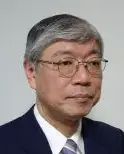 Hiroshi Nakanishi Professor, Graduate School of Public Policy, Kyoto University2024 was a truly global election year, with voters in much of the world, including Japan...
Hiroshi Nakanishi Professor, Graduate School of Public Policy, Kyoto University2024 was a truly global election year, with voters in much of the world, including Japan...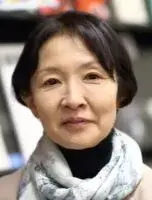 Fumiko Nishizaki Professor Emeritus, University of TokyoThe 2024 United States presidential election ended in a stunning total victory for Donald Trump and the...
Fumiko Nishizaki Professor Emeritus, University of TokyoThe 2024 United States presidential election ended in a stunning total victory for Donald Trump and the... Shin Kawashima Professor, Graduate School of Arts and Sciences (International Relations), The University of TokyoThe current era is increasingly one of division, both between and within countries, as well as throughout...
Shin Kawashima Professor, Graduate School of Arts and Sciences (International Relations), The University of TokyoThe current era is increasingly one of division, both between and within countries, as well as throughout...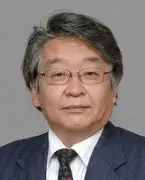 Keiichi Katakami Chairman, Institute for International Economic StudiesIn 2025, the world is once again faced with a Trump Presidency in the United States. It is not difficult...
Keiichi Katakami Chairman, Institute for International Economic StudiesIn 2025, the world is once again faced with a Trump Presidency in the United States. It is not difficult... Mari Aburamoto Professor, Faculty of Law, Hosei UniversityRussia’s “implicit social contract” is often cited as critical element explaining the surprising resilience. ..
Mari Aburamoto Professor, Faculty of Law, Hosei UniversityRussia’s “implicit social contract” is often cited as critical element explaining the surprising resilience. ..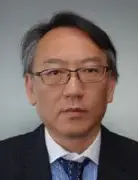 Ke Long Senior Research Fellow, Tokyo Foundation for Policy ResearchWhat does the year 2025 have in store for the world? If nothing else, with the advent of the second...
Ke Long Senior Research Fellow, Tokyo Foundation for Policy ResearchWhat does the year 2025 have in store for the world? If nothing else, with the advent of the second... Takako Imai Professor,Faculty of Law, Seikei UniversityAmidst the global election year that was 2024, the results in Europe, particularly in the United Kingdom...
Takako Imai Professor,Faculty of Law, Seikei UniversityAmidst the global election year that was 2024, the results in Europe, particularly in the United Kingdom... Daisuke Ikemoto Professor, Faculty of Law, Meiji Gakuin UniversityOn January 20, 2025, Donald Trump returned to the office of President of the United States. Opinions are...
Daisuke Ikemoto Professor, Faculty of Law, Meiji Gakuin UniversityOn January 20, 2025, Donald Trump returned to the office of President of the United States. Opinions are...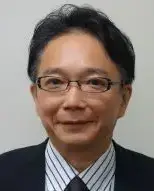 Keitaro Ono Diet Member, House of Representatives, JapanThe decline of the international order is cause for great alarm. Not only is the risk of outright military...
Keitaro Ono Diet Member, House of Representatives, JapanThe decline of the international order is cause for great alarm. Not only is the risk of outright military... Sayuri Ito Executive Director, NLI Research Institute Economic Research DepartmentThe year 2025, which began with the inauguration “Trump 2.0,” will undoubtedly see the global...
Sayuri Ito Executive Director, NLI Research Institute Economic Research DepartmentThe year 2025, which began with the inauguration “Trump 2.0,” will undoubtedly see the global...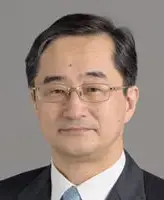 Fukunari Kimura Professor Emeritus, Keio University / Japan External Trade Organization Economic Research HeadAt the time of this volume’s writing, on the eve of Trump’s second inauguration, it is difficult to say...
Fukunari Kimura Professor Emeritus, Keio University / Japan External Trade Organization Economic Research HeadAt the time of this volume’s writing, on the eve of Trump’s second inauguration, it is difficult to say...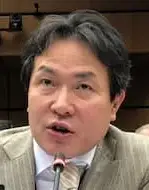 Nobuyuki Kikuchi Minister-Counsellor, Permanent Mission of Japan to the International Organizations in ViennaVienna is a city with a unique and important role in the history of concert of nations. Following the...
Nobuyuki Kikuchi Minister-Counsellor, Permanent Mission of Japan to the International Organizations in ViennaVienna is a city with a unique and important role in the history of concert of nations. Following the... Kota Takaguchi Journalist, Visiting Professor, Chiba University“The slowdown of the Chinese economy is worrying.” Those words headlined my essay in the 2024...
Kota Takaguchi Journalist, Visiting Professor, Chiba University“The slowdown of the Chinese economy is worrying.” Those words headlined my essay in the 2024...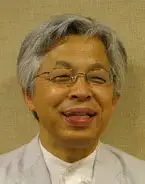 Hiroshi Yahagi Professor Emeritus, Ryukoku UniversityReading the newspaper after the end of the 2024 US presidential election was depressing. Watching the...
Hiroshi Yahagi Professor Emeritus, Ryukoku UniversityReading the newspaper after the end of the 2024 US presidential election was depressing. Watching the... Yasu Ota Professor, Hokkaido University, Faculty of EngineeringDoes US President Donald Trump have any friends with whom he can have an open, honest conversation...
Yasu Ota Professor, Hokkaido University, Faculty of EngineeringDoes US President Donald Trump have any friends with whom he can have an open, honest conversation... Masahiko Kiya Ambassador, Permanent Mission of Japan to ASEANSince the end of the Second World War, Japan has prioritized building strong relationships with the...
Masahiko Kiya Ambassador, Permanent Mission of Japan to ASEANSince the end of the Second World War, Japan has prioritized building strong relationships with the... Hidekazu Tanaka President and CEO, Rexpert Communications Co., Ltd.Amidst increasing global uncertainty, Japan finds itself in need of a greater collaborative relationship with the...
Hidekazu Tanaka President and CEO, Rexpert Communications Co., Ltd.Amidst increasing global uncertainty, Japan finds itself in need of a greater collaborative relationship with the... Ken Kusunoki Specially Appointed Professor, Hitotsubashi Business SchoolThe Russian invasion of Ukraine is a war of aggression that was started by Vladimir Putin, is being waged...
Ken Kusunoki Specially Appointed Professor, Hitotsubashi Business SchoolThe Russian invasion of Ukraine is a war of aggression that was started by Vladimir Putin, is being waged... Kazuko Kawamoto Visiting Research Fellow, Institute of Economic Research, Hitotsubashi UniversityAccording to a November 2024 survey by the Levada Center, a Russian nongovernmental polling...
Kazuko Kawamoto Visiting Research Fellow, Institute of Economic Research, Hitotsubashi UniversityAccording to a November 2024 survey by the Levada Center, a Russian nongovernmental polling... Shinichiro Tabata Professor Emeritus, Hokkaido UniversityThe effectiveness of sanctions on Russia over its war in Ukraine is a topic of some debate. It is...
Shinichiro Tabata Professor Emeritus, Hokkaido UniversityThe effectiveness of sanctions on Russia over its war in Ukraine is a topic of some debate. It is... Mihoko Kato Associate Professor, Hiroshima Peace Institute, Hiroshima City UniversityOn June 19, 2024, Russia and North Korea jointly announced that they had signed a ‘Treaty on...
Mihoko Kato Associate Professor, Hiroshima Peace Institute, Hiroshima City UniversityOn June 19, 2024, Russia and North Korea jointly announced that they had signed a ‘Treaty on... Kimitaka Matsuzato Professor, Shanghai Academy of Global Governance and Area Studies, Shanghai InternationalAfter the outbreak of war between Russia and Ukraine in early 2022, there was initially great concern...
Kimitaka Matsuzato Professor, Shanghai Academy of Global Governance and Area Studies, Shanghai InternationalAfter the outbreak of war between Russia and Ukraine in early 2022, there was initially great concern... Kai Kajitani Professor, Graduate School of Economics, Kobe UniversityIn recent years, China has seen an increasing number of indiscriminate killings. In Chinese society, these...
Kai Kajitani Professor, Graduate School of Economics, Kobe UniversityIn recent years, China has seen an increasing number of indiscriminate killings. In Chinese society, these... Asei Ito Associate Professor, Institute for Social Science, University of TokyoA famous scholar from Beijing came to Tokyo University to give a lecture titled “The Great Catch Up,” that...
Asei Ito Associate Professor, Institute for Social Science, University of TokyoA famous scholar from Beijing came to Tokyo University to give a lecture titled “The Great Catch Up,” that...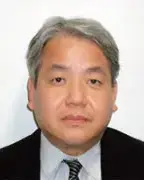 Osamu Tanaka Visiting Professor, Graduate School, Takushoku Universityhina reports quarterly growth rates as year-on-year figures, comparing each quarter to the same quarter...
Osamu Tanaka Visiting Professor, Graduate School, Takushoku Universityhina reports quarterly growth rates as year-on-year figures, comparing each quarter to the same quarter...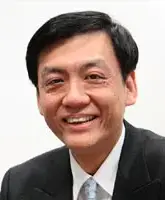 Chi Hung Kwan Senior Fellow, Nomura Institute of Capital Markets ResearchRecent years have witnessed an accelerating exodus of foreign companies from China. Alongside...
Chi Hung Kwan Senior Fellow, Nomura Institute of Capital Markets ResearchRecent years have witnessed an accelerating exodus of foreign companies from China. Alongside...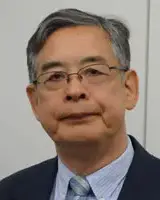 Yukihide Hayashi President, Life Science Foundation of JapanOver the past few years, China has become the global leader in scientific and technological research output...
Yukihide Hayashi President, Life Science Foundation of JapanOver the past few years, China has become the global leader in scientific and technological research output...


01
The Return of the Trump Administration and the End of the Postwar International Order
The Return of the Trump Administration and the End of the Postwar International Order
Hiroshi Nakanishi Professor, Graduate School of Public Policy, Kyoto University
2024 was a truly global election year, with voters in much of the world, including Japan, harshly rebuking incumbents at the ballot box. A perfect example is the G7 which held its Summit in Italy in June 2024. Just a few short months later, three of the leaders who attended, Joe Biden of the United States, Fumio Kishida of Japan, and Rishi Sunak of the United Kingdom, had all been forced out of office, while three of those who remained, France’s Emmanuel Macron, Germany’s Olaf Scholz, and Canada’s Justin Trudeau struggle with record low approval ratings. Of course, the most potent symbol of such voter frustration was Donald Trump’s victory over Kamala Harris in the 2024 United States Presidential Election, the first time in 132 years that a US president has secured a non-consecutive second term.
On the surface, the driving factor behind this trend can appear to be rooted in the unique domestic social, economic, and political problems facing each individual country, such as high inflation, illegal immigration, and perceived corruption. However, the international nature of this electoral phenomenon hints at it being driven by larger overarching trends . The global order crafted and led by the United States in the aftermath of World War II, was a package deal that depended on a model of national political and economic development mirroring that of the manufacturing powerhouse that was the United States. The rejection of the post war international order’s standard bearers even amidst wars in both Ukraine and the Middle East, demonstrates just how disconnected they are viewed as being across both domestic and foreign policy. Ultimately the move from industrial societies to financialized information economies, combined with factors such as population aging, climate change, and the economic rise of countries outside the political west has put intense structural pressure on the old order, and as it begins to crack, voters increasingly reject the status quo.
The administration of Donald Trump, a voracious critic of both modern America and the post war international order will inevitably accelerate the effort to see that order dismantled. While this inevitably carries enormous risks, the destruction of the existing international order is perhaps no longer avoidable. 2025 will thus be a year in which humanity will be tested, if we are to avoid catastrophe, our capacity for destruction must be matched by a willingness to engage in the difficult task of rebuilding a changed international order.
02
Upholding Our Values Amidst the Erosion of Democracy and the Rule of Law
Upholding Our Values Amidst the Erosion of Democracy and the Rule of Law
Fumiko Nishizaki Professor Emeritus, University of Tokyo
The 2024 United States presidential election ended in a stunning total victory for Donald Trump and the Republican Party. This result surprised even many seasoned observers of US politics, hinting at a degree of societal upheaval far greater than most had imagined. For the Democratic Party, regaining power will inevitably require rebuilding itself and its policies from the ground up, with a focus on the most relevant issues and the challenges its supporters—whom the party have long taken for granted, such as working class and minority voters—are now facing. The Republican Party, meanwhile, must now turn its focus to figuring out what the voters expect out of the party in exchange for their vote.
A failure by either party will further fuel the deep discontent over living standards, unhealthy concentration of wealth and power, and mutual distrust that is driving Americans apart, while exacerbating political gridlock, and fermenting increasingly vitriolic tones of elections marked by hollow victories.
Amidst the decline of American democracy, and the society that supports it, it is critical that Japan, which has long depended on its alliance with the United States for its security, develop both the political will and the capacity to develop and pursue its own strategy and policies. Japan must not give in to the rising tide of antidemocratic authoritarian forces, anti-immigrant sentiment, and cynicism sweeping not only the United States, but much of the world, and instead stand strong in proactively defending pluralist democratic values. Democracy, constitutionalism, and the rule of law are not just pretty words, and they are also clearly not a given, but are rather like a living organism whose needs and health must be considered if it is to be maintained. Here, we can learn much from the Nobel Peace Prize-winning ‘Nihon Hidankyo,’ or Japan Confederation of A- and H-Bomb Sufferers Organizations, about refusing to compromise on what is right, and speaking truth to power. In 2025, as Japan marks the 80th anniversary of the end of World War II, it is more important than ever to reflect on what we gained in defeat, and the foundations of the country’s remarkable postwar peace and prosperity.
03
Consensus Wanes as the Age of Division Dawns
Consensus Wanes as the Age of Division Dawns
Shin Kawashima Professor, Graduate School of Arts and Sciences (International Relations), The University of Tokyo
The current era is increasingly one of division, both between and within countries, as well as throughout regions, and worldwide. However, the primary divide is not over economic prosperity, political systems or even policies. Rather, it is a more insidious break in how people fundamentally see and understand the world, leading to divergences in how they view every issue. It is not a clean division between two ideologies, but rather an infinitely diverging morass of positions on each individual issue, often bereft of unifying features or underlying logic. Amidst the emergence of such deep-seated and diversified divisions of worldview, we have entered an age in which consensus is almost impossible to achieve.
This can be seen in the way that different countries frame geopolitics. Japan and most other developed countries tend to see the primary axis of confrontation being between developed countries on the one side opposing China, Russia, Iran, and North Korea on the other, with the Global South caught in the middle. China, however, rejects this framing, instead arguing that the main axis of confrontation is between developed and developing countries, with China courageously standing up for the latter. Of course, the individual countries of the “Global South,” and the “Islamic World,” also have their own way of viewing the world. For example, while condemnation of the United States role in the war in Gaza is near universal across Muslim-majority countries, including non-Arab countries such as Malaysia and Indonesia, on other issues these countries are divided and rarely speak with one voice.
Since the Russian invasion of Ukraine in 2022, Japan has doubled down on a policy of strengthening its alignment with the United States and like-minded democracies. Setting aside the pros and cons of this approach, Japan’s unique position within East Asia, and its status as the only non-Western G7 member, undoubtedly demand a decision-making process that is both strategic, and flexible. In 2025 and the years ahead, the global political situation is undoubtedly only going to grow more unstable. As the era of division spreads and consensus evaporates, Japan must ask how it can overcome these fissures and find a way to build bridges across the numerous divisions in the world. For that to happen however, Japan must be flexible, and strategic, instead of constraining its policy making with outdated conceptions of a long past bipolar world order.
04
Anxieties and Expectations as the World Awaits Trump 2.0
Anxieties and Expectations as the World Awaits Trump 2.0
Keiichi Katakami Chairman, Institute for International Economic Studies
In 2025, the world is once again faced with a Trump Presidency in the United States.
It is not difficult to imagine that behind the rise of Trump, who espouses slogans such as “America First” and “Make America Great Again,” lies a deep well of discontent and distrust in the seemingly unchanging systems and world order, that have for so long been dominant, but for so many, no longer seem to be working.
“America First,” is at its core an ideology of resentment, that sees the United States as having been “taken advantage of” by other countries which free ride on its commitment to ensuring global peace and prosperity, allowing their own citizens to prosper while those of the United States must make sacrifices.
This inevitably leads to a fixation geopolitically, on reducing commitments abroad, asking what allies can do for America, and insisting that those allies increase their defense budgets, while pursuing a protectionist economic policy through tariffs that will supposedly revive American manufacturing, safeguard America’s workers, and eliminate its budget deficit. Simultaneously, the creed of “Make America Great Again” demands that America be unquestionably number one, and that its global hegemony remain unchallenged, particularly regarding emerging technologies. This will undoubtedly worsen the zero-sum competition between the US and China, and increase the risk of outright conflict.
However, that isn’t to say there is no reason for limited optimism. A leader unbound by the conventional wisdom, the rules and principles that guide international institutions and more democratically minded leaders, can perhaps bring a unique, albeit likely blunt force approach to issues those leaders have struggled to manage, such as the increasingly stalemated war in Ukraine, or China’s hegemonic incursions against its neighbors in the South China Sea.
Amidst the great uncertainty of what Trump 2.0 will bring, what is unquestionable is that for better and for worse, this is not the Trump of 2016, and anyone who assumes it will be is in for a rude awakening. Trump enters office in 2025 as a confident figure, with four years of experience under his belt, the memory of his first term fresh, a better understanding of what he can achieve, knowledge of how to push past and dismantle institutional limits, and a developed political machine that is prepared to reshape Washington to enact his will without question.
05
The Russian State: A Vehicle for the Maintenance of the Social Status Quo
The Russian State: A Vehicle for the Maintenance of the Social Status Quo
Mari Aburamoto Professor, Faculty of Law, Hosei University
Russia’s “implicit social contract” is often cited as critical element explaining the surprising resilience of the Russian regime domestically. In exchange for stability and the protection of their livelihoods, Russians quietly pledge their obedience to the regime, and refrain from questioning its actions.
This phrase first came into the parlance of Russian Studies during the Brezhnev era in the Soviet Union. It emerged in response to the question of why Soviet citizens continued to quietly accept authoritarian rule without dissent, in spite of the repressive apparatuses of the Soviet Union being significantly more restrained than under Stalin. Western Scholars noted that Soviet citizens appeared to be in a reciprocal relationship with the state in which they provided their unquestioned loyalty, and in return the state secured their livelihoods through the provision of employment, income, social services, housing, and consumer goods.
Following Putin’s rise to power in Russia, the country has once again begun to resemble the Soviet era. Authoritarianism rises unchecked and freedoms are stripped away, yet the majority of citizens tacitly accept the regime. To many, this suggested that the explanatory power of the concept of a Russian implicit social contract remained alive and well. Putin’s reign has been marked by improving economic conditions, dovetailing with the idea that the Russian people are trading their support of the regime in return for being able to maintain a certain degree of economic prosperity.
While the idea of an implicit social contract can perhaps explain the quiet acquiescence of Russia’s citizens to Putin’s whims, for Putin, there is inevitably a catch, which is that, if Russians no longer feel he can guarantee them an acceptable standard of living, he may well lose their support. In fact, the fall of the Soviet Union was also preceded, and inevitably exacerbated by, a collapse in public faith in the Soviet social contract. For the moment, the Putin regime appears to be narrowly maintaining public support under the banner of war, but for how long the delicate balance can be maintained remains to be seen.
06
A Year of Uncertainty: New Developments in the Japan-China Relationship
A Year of Uncertainty: New Developments in the Japan-China Relationship
Ke Long Senior Research Fellow, Tokyo Foundation for Policy Research
What does the year 2025 have in store for the world? If nothing else, with the advent of the second Trump administration in the United States, we can safely assume it will be a year of marked uncertainty. Donald Trump, with his “America First” ideology and disdain for the existing rules-based international order, will undoubtedly engage in the unrestrained pursuit of what he views as being in the American national interest.
Of all the risks inherent to such an approach, perhaps none is more worrying than its potential to aggravate the preexisting conflict in, and deterioration of, the relationship between the United States and China. During the first Trump administration, the United States Government not only placed punitive tariffs on Chinese imports but took the unprecedented step of sanctioning Chinese high-tech companies, beginning with Huawei.
Donald Trump’s electoral victories have already affected a massive and sudden change on international trade and cross-border investment, supercharging the efforts of multinational corporations to diversify their supply chains away from China and toward other emerging countries. At this point, it is clear that the decoupling of the United States and Chinese economies is now unavoidable.Amidst this turmoil and uncertainty, there is an urgency in Japan regarding how it can manage global risk and reorient its strategy in 2025. While there is undoubtedly a strong logical case for ending Japan’s economic over-reliance on China, a Japan-China decoupling is at this moment, unrealistic.
The three years following the emergence of the COVID-19 pandemic in 2020 saw a marked slowdown in the growth of the Chinese economy. In response, Chinese policymakers have attempted to pursue a raft of measures, including greater cooperation with Japan. However, the preexisting challenges in the relationship between the two countries have proved increasingly intractable. From the Japanese government’s continued release of treated radioactive water from the Fukushima Daiichi Nuclear Plant to the arrest of Japanese nationals in China over dubious national security claims, the relationship is plagued by many problems and no easy solutions.
The Japan-China relationship of years past was built on people-to-people diplomacy. Unfortunately, amidst the transition to a new generation of leaders in both countries, there is now a disappointing and ironic lack of people who can be depended upon to responsibly manage this relationship. From the Chinese perspective, Japan can be perceived as an unfriendly country that is a US ally. However, for both countries, the continued deterioration of their relationship is likely to be a harbinger of instability, bringing with it a significant increase in geopolitical risk. Thus, the Ishiba government in Japan’s expressed desire to seek greater dialog with China is a welcome reprieve that one can only hope can begin to outline the contours of a new Japan-China relationship.
07
Can Center-Left Governments Overcome the Dilemma of Responsible Responsiveness?
Can Center-Left Governments Overcome the Dilemma of Responsible Responsiveness?
Takako Imai Professor,Faculty of Law, Seikei University
Amidst the global election year that was 2024, the results in Europe, particularly in the United Kingdom, were notable for the marked decline in support for mainstream political parties, and the continued meteoric rise of anti-immigrant far-right parties.
While the United Kingdom saw its first transition of power in 14 years, with Labour taking the reins of government, the transition took place against a backdrop of declining support for both Labour and the Conservative, the two main political parties, and the rise of the far-right Reform UK party. The end of Conservative rule in the United Kingdom was brought about by voters who had finally had enough with the party’s policy failures and scandals and no longer trusted it to govern. While the Labour Party managed to ride voter anger to secure a resounding 63% majority of parliamentary seats, that majority is built on shaky foundation, with the party securing the lowest share of the vote total ever recorded for a single ruling party, and the disparity between a public opinion that is increasingly divided across multiple parties, and the number of seats secured by each party being larger than ever. By November, the approval rating for the new Starmer administration had already fallen dramatically to just 23%, with Nigel Farage the leader of Reform UK, which has just five seats in parliament, taking the lead in popularity.
The governing party in any democracy is always hamstrung by the dilemma of needing to be both responsive to voter desires, yet responsible to real world constraints. Starmer has attempted to portray himself as just such a responsible leader to the British people, seeking to balance increased investment in public services with a promised reconstruction of British state finances, while also hardening British immigration and refugee policies in response to increasing popular support for the anti-immigrant far-right. However, across almost all fronts, this balancing act has backfired. His attempts to counteract the country’s massive deficit and balance the budget through increased taxes have resulted in his administration taking intense, sustained fire from business leaders, independent farmers, and the upper class, while his attempts to placate the anti-immigrant sentiment with tougher policies have only emboldened Farage’s Reform UK. Meanwhile, his decision to pull back on policies aimed at promoting pluralism and combatting climate change have alienated liberal Labour supporters in urban areas, many of whom have drifted toward Liberal Democrats and the Green Party. This isn’t surprising; research on democratic politics suggests that the path to expanding support for a center left party lies not in pandering to conservatives, but in a return to and focus on core liberal values such as promoting equality. It has become increasingly clear that people become more willing to support extremist parties when they experience socioeconomic “status anxiety.”
Thus, the question facing today’s center-left parties then is whether their traditional blend of policies aimed at promoting social welfare while facilitating economic growth is still able to relieve such anxiety and generate what American political philosopher John Rawls termed the “social bases of self-respect.” From reconstructing government finances and addressing the inadequacies of the current social welfare system, to navigating the difficulties of a declining labor force and increased immigration, the challenges currently bedeviling the Starmer government in the United Kingdom will all eventually come to Japan in full force. Thus, Japanese policymakers would do well to take note of the successes and failures of center left politics and the Labour Party in the United Kingdom.
08
As the Trump 2.0 Era Looms, How Can Japan Support the International Order
As the Trump 2.0 Era Looms, How Can Japan Support the International Order
Daisuke Ikemoto Professor, Faculty of Law, Meiji Gakuin University
On January 20, 2025, Donald Trump returned to the office of President of the United States. Opinions are divided on his stance toward groups such as immigrants and LGBT people, and much of the policy agenda of his second term remains shrouded in mystery. What is almost certain however, is that Trump’s return to office will see America turn its back on the kind of multilateralism that has long been a cornerstone of American foreign policy in favor of his mercurial “America First” agenda, and this will undoubtedly deal another heavy blow to the already reeling rules-based liberal international order.
This isn’t to say that the existing rules-based international order is perfect, far from it, nor that its decline is due solely to the emergence of populists like Trump. Global trust in its principles had undoubtedly declined amidst both the deliberate challenge posed by the actions of authoritarian countries like China and Russia, and the inconsistent and seemingly arbitrary way in which even the United States and Europe, its strongest promoters, applied its purported rules. Ultimately, the reality is that power politics is still very much a part of international relations. Still, if even the veneer of a rules-based international order can no longer be maintained, the world will see what it truly means to slide back into an era in which “the strong do what they can, and the weak suffer what they must.” Such an outcome poses an acute danger for a country like Japan, which possesses only limited military capacity, and which is wholly reliant on trade for access to resources and food.
While its relationship with the United States will undoubtedly continue to be of the utmost importance, Japan must do all that it can to protect and extoll the virtues of the rules-based international order to refuse unreasonable and exorbitant demands. Japan must double down on enhancing cooperation with not only rules-based organizations such as the European Union, and like-minded developed countries such as the United Kingdom, but also with the countries of the Global South, which have the most to lose from a world of belligerent, unrestrained great power politics. This will undoubtedly prove a challenging test for Japanese diplomacy in the years ahead.
09
What Japan Needs to Secure Stable Economic Growth
What Japan Needs to Secure Stable Economic Growth
Keitaro Ono Diet Member, House of Representatives, Japan
The decline of the international order is cause for great alarm. Not only is the risk of outright military aggression and coercion by authoritarian countries and actors rising, but so too, are the challenges posed by economic coercion through trade restrictions, and disorder and discord fermented by the spread of disinformation through cyberspace, all of which increase the geopolitical risk involved in constructing economic policy, and exploit weaknesses of rule-abiding democratic countries.
All of this speaks to the urgent need to strengthen economic security. Of course, the most powerful weapon, and the surest deterrent in the economic security realm is the accumulation of economic power itself, to the greatest extent possible. Beyond that, lies the maximization of national interest through an appropriate calibration of the balance between freedom and regulation. Japan stands firmly on the side extolling the virtues of expanding free trade, with minimal reliance on regulation and a focus on positive incentives.
Taking a bird’s-eye view of the Japanese economy, the biggest hurdle is undoubtedly the need to raise productivity. Japan’s economic policy must be shifted to a greater focus on the supply side and the strengthening of industrial policy. If Japan’s government wishes to see the locus of Japanese investment shift back to Japan from overseas, it too, must show that it is ready and willing to make big investments in Japan. The industrial policy must be bold, precisely because Japan has been trapped in an era where supply constraints pose a greater challenge than insufficient demand. In doing so, Japan must work pursue a proactive economic security policy that fortifies industries exposed to geopolitical risk and potentially subject to economic coercion through measures such as strengthening supply chains through expanded international cooperation with like-minded countries and the rationalization of trade and investment management policies through enhanced public-private cooperation. A market will never attract investment unless investors believe it is safe and secure.
However, the primary actors responsible for ensuring a safe and secure market are private companies and research organizations. In this regard, economic security is fundamentally different from national security, where state organizations such as the National Security Secretariat, Ministry of Defense, and Ministry of Foreign Affairs play the leading role. Of course, international cooperation, in which both the public and private sectors play key roles, is also an important component of economic security. It is from this perspective that efforts to outline an economic security must be drawn, and a vision for a national economic security policy defined, shared, and ultimately pursued.
10
Dealing with Trump 2.0
Dealing with Trump 2.0
Sayuri Ito Executive Director, NLI Research Institute Economic Research Department
The year 2025, which began with the inauguration “Trump 2.0,” will undoubtedly see the global economy continue to fracture ad globalization’s unwinding accelerates. Compared to the first Trump administration, US partners and allies are now even more likely to find themselves in the crosshairs of Trump 2.0’s Tariff policies. Many of them, from neighboring Mexico to the European Union, and Southeast Asian countries like Vietnam, have seen their trade surplus with the US increase in recent years, making them ripe targets for the Trump administration’s efforts to reduce the US trade deficit. It is worth noting here that in contrast to other US allies, Japan’s trade balance with the US remains relatively unchanged since Trump’s first term, while the trade surplus of Trump bogyman China has actually decreased.
The EU, hoping to avoid an escalatory cycle of tit for tat reciprocal tariffs, has responded to Trump 2.0’s attempt to extract concessions via tariff threats with a focus on negotiations, hoping to find room for compromise. Given the reliance of European states on their alliance with the United States for their national security, and on access to the US market for the success of their companies, it is only natural that Europe would first seek to find ways to accommodate US demands. However, Trump 2.0’s willingness to deploy coercive economic measures like tariffs in pursuit of his newfound desire to annex the Panama Canal and Greenland, the autonomous territory of Denmark, while also refusing to disavow the potential use of military force in those pursuits, highlights the difficultly of accommodating his ever-expanding megalomania. While conflict should ideally be avoided, some problems cannot be easily resolved by diplomacy and negotiation alone.
Ultimately, many US allies will be forced to stand up against Trump 2.0, and doing so successfully will require three main things. First, they must collaborate with allies, partners, and like-minded countries to increase their collective bargaining power vis a vis-á-vis the United States. Second, they must deepen their relationships with the countries of the Global South to better cooperate on upholding the rules-based system of international free trade, which can reduce the risks of Trump 2.0’s destructive policies. Third and finally, they should use the impetus of Trump 2.0 to rectify their own domestic structural problems and ensure they and their citizens are maximizing the benefits they can enjoy under the global systems of free trade and investment.
11
Combatting the Trump 2.0 Tariffs
Combatting the Trump 2.0 Tariffs
Fukunari Kimura Professor Emeritus, Keio University / Japan External Trade Organization Economic Research Head
At the time of this volume’s writing, on the eve of Trump’s second inauguration, it is difficult to say what exactly his reelection has in store for us. What is certain however, is that Trump will undoubtedly wave the specter of tariffs, and in light of that, we should remember the following three points.
First, we can expect that forthcoming US actions will not only worsen geopolitical tensions with China in accordance with the logic of international relations but will also seek to intertwine them with a protectionist trade policy that includes elements of economic coercion. Wherever possible we must seek to divorce matters of national security from those that should be understood solely through the lens of economics or commercial policy.
Second, while tariffs can be powerful mechanism for regulating trade, they are also a simple, blunt instrument whose economic impact is transparent and easy to see. For example, if the United States attempts to apply different tariff rates across different countries for the same good, we can use a simple three country international trade model to see how businesses will simply overhaul their supply chains, using free trade agreements to minimize the impact of the tariffs. Unreasonable, discriminatory trade policy built on faulty logic will ultimately not be able to stand up to the cold hard logic of the market mechanism, which will quickly work to offset its impact. Maintaining the dynamism of the global economy will require countering the negative trade creation effect caused by higher tariffs through a dogged pursuit of positive trade diversion effects.
Third and finally, the most frightening possibility is the potential for a complete collapse of the global trading order. It is unfortunately not possible to prevent the United States under Trump from wantonly violating the rules of global trade. However, other countries should still attempt to follow the rules of and maintain the existing global trade order to the best of their ability. From an economic security standpoint, countries should attempt to follow the strategy of having “small yard, high fence,” that is to say, a strong economy that restricts only the most sensitive items, seeking to maintain as broad, open and free an environment for trade and investment as possible with a wide array of middle and small powers, developed, emerging, and developing countries alike.
12
Vienna: The History and Future of Concert of International Community
Vienna: The History and Future of Concert of International Community
Nobuyuki Kikuchi Minister-Counsellor, Permanent Mission of Japan to the International Organizations in Vienna
Vienna is a city with a unique and important role in the history of concert of nations. Following the conclusion of the Napoleonic Wars, the Congress of Vienna (1814-1815), with the five great powers at that time, the United Kingdom, Austria, Russia, Prussia, and France—to draw up the contours of a post-Napoleonic international order built on “the principles of legitimacy” and the balance of power.
This “Vienna Regime” was the progenitor of the League of Nations and, in due course, the United Nations. Today, Vienna is the UN’s third headquarters city (after New York and Geneva), and serves as a forum for deliberation on various intentional issues and the pursuit of solutions. International Organizations in Vienna accord weight to the consensus procedure, which entails thorough deliberation and seeks agreement among all participating states, a practice known as the “Spirit of Vienna”.
This approach is distinct from formal unanimity, which would vest a legal veto in each country. While sometimes criticised as inefficient, it has played an important role in preventing the deterioration of international affairs. This spirit, however, has come under challenge. While voting can expedite decision-making, resolving problems is difficult in the absence of genuine agreement. This is particularly relevant today, as the world faces a complex array of challenges from the War in Ukraine, heightened geopolitical tensions in the Middle East, and instability in East Asia, to internal discord within nations, widening economic gaps, backlash against globalisation, migration challenges, and distrust of elites.
There is growing skepticism toward multilateralism; a turn toward putting one’s own country first and a renewed emphasis on the national are evident. While multilateralism can indeed be inefficient, and a more straightforward pursuit of national interest is not always a negative. Multilateralism nonetheless provides a standing forum in which states—large and small, and under differing political systems—can sustain dialogue, thereby helping to avert deterioration in the international situation. Multilateralism therefore continues to have a vital role to play. However, the efficacy of traditional multilateralism is now in question. The challenge is to adapt to new circumstances while preserving the “Spirit of Vienna.” Vienna still has a role in shaping an international order attuned to the voices of the silent majority, rather than being biased toward the voices of a vocal minority.
13
From Geopolitics to Trade Friction: The Key Factor in the US-China Relationship Under Trump 2.0
From Geopolitics to Trade Friction: The Key Factor in the US-China Relationship Under Trump 2.0
Kota Takaguchi Journalist, Visiting Professor, Chiba University
“The slowdown of the Chinese economy is worrying.” Those words headlined my essay in the 2024 edition of “Japan in Global Context,” and now, one year later, that worry has only grown. While even a cursory glance at China’s economic growth figures should dispel any notions of immediate catastrophic failure, China is now clearly plagued by problems such as an unrelenting decline in real estate values, a cooling of consumer sentiment, and falling commodity prices all of which have worsened since 2024. Despite this slowdown of the Chinese economy becoming apparent as early as 2021, the country has yet to demonstrate a clear path toward exiting it.
Amongst the many reasons for the slowdown, the contractionary fiscal policy pursued by the Chinese government inevitably plays a significant role. In the fall of 2024, for example, many market participants anticipated that the Chinese government would issue additional deficit-financing bonds to support a significant fiscal stimulus package. Instead, however the central government merely converted the hidden balance sheets of indebted local governments into local government bonds, deftly defying market expectations. Of course, one could argue that the Xi Jinping administration has been remarkably consistent on this issue, and that this was merely a case of market participants being letdown by their own hype. While the administration issues guidance to the financial system and local governments aimed at avoiding bankruptcies, it has remained negative on and mostly unwilling to heed calls for stimulating domestic demand via an expansionary fiscal policy. Ultimately, the government seeks to increase economic growth through supply-side reforms aimed at creating “New Quality Productive Forces.” While this policy is consistent, it is also problematic in the current environment. Even if its proposed reforms succeed in increasing supply, as long as domestic demand continues to shrink amidst an anemic economic outlook, that excess supply will inevitably have to be exported overseas.
It is undeniable that the US - China decoupling that has occurred under the first Trump and Biden administrations has been driven primarily by national security concerns, and there was an element of Europe and Japan being dragged along for the ride. Going forward however, it is likely that concern over trade imbalances will overtake national security concerns as the impetus for further decoupling. The question of how to deal with Chinese exports will be of increasing concern to Japan, Europe, and the countries of the global south going forward.
14
California: Standing up to Donald Trump and Rejecting the ‘Politics of Defeat’
California: Standing up to Donald Trump and Rejecting the ‘Politics of Defeat’
Hiroshi Yahagi Professor Emeritus, Ryukoku University
Reading the newspaper after the end of the 2024 US presidential election was depressing. Watching the news in the United States, I felt physically sick thinking about the children whose futures global warming puts at stake, and the fear felt by undocumented immigrants now threatened with forceful deportation. However, the day after the election, I heard California governor Gavin Newsom had convened a special session of the California legislature stating that he ‘wasn’t so foolish as to wait and see’ what the incoming Trump administration had in store. Instead, he announced that California would begin crafting laws and preparing lawsuits to resist the tyranny of the incoming administration and protect democracy. Newsom’s announcement was a bold and courageous declaration of his intent to fight the coming politics of fear, rather than retreat into the ‘politics of defeat.’
The ideology of California, what one might call, “Californiaism,” is the beating heart of modern American liberalism. California will thus inevitably clash with the incoming Trump administration on issues ranging from immigration, healthcare, climate change, LGBTQ+, and abortion, exacerbated by the existing history of mutual animosity between Newsom and Trump. Trump has repeatedly stated that he will crush California electorally in the next election, while Newsom stands at the vanguard of what some are calling a ‘Federation of Blue States.’ During the first Trump administration, California sued the federal government 120 times to block Trump policies.
With over 39 million people and the fourth largest economy in the world, a great deal of academic research has gone into studying the “California Model.” Such interest exists because California is able to leverage its immense size to tip the scales of economic, social, cultural, and technological policy toward progressivism in a manner unparalleled anywhere else in the world. The policies that will be enacted by Trump, who is generally averse to immigration and has pledged to ruthlessly deport undocumented immigrants, will undoubtedly inflict significant harm on the Californian agricultural industries of wine, almonds, and oranges. Silicon Valley, home to many immigrants of Asian descent, is also undoubtedly bracing for impact.
Trump’s second term will undoubtedly see an intensification of the conflict between Trump and the California Model. Thus, even those of us half a world away must not allow ourselves to give in to defeatism, and do what we can to write about, and support those resisting the Trump administration.
15
As the World Heads Towards Lawlessness, Only Those Who Make Friends Will Survive
As the World Heads Towards Lawlessness, Only Those Who Make Friends Will Survive
Yasu Ota Professor, Hokkaido University, Faculty of Engineering
Does US President Donald Trump have any friends with whom he can have an open, honest conversation? How about Chinese President Xi Jinping: does he possess comrades who feel comfortable speaking their mind to him without hesitation?
It seems this era of strongman leaders in the US and China, who trust no one but themselves and throw their weight around, much to the dismay of the rest of the world which must scurry to get out of their way, will continue for the time being. For Japan, treaty ally of the United States, and neighbor of China, the dilemma is particularly acute, and it risks being swallowed up under the waves of this mercurial era if it does not tread carefully.
For deceased former Prime Minister Shinzo Abe, the answer was to build a personal relationship with Trump. While it may have been a stretch to call them ‘best friends’ he nonetheless succeeded in getting Trump to at least listen to him. Hence, ever since Trump’s reelection, there have been voices in Japan lamenting that US-Japan ties would be better if only Abe were still alive. However, the idea that it was ever really appropriate for Japanese diplomacy to be so dependent on the whims of a nebulous personal relationship, is questionable at best.
In fact, during the first Trump administration, excessively high tariffs were imposed on steel and aluminum imported into the United States under the guise of national security, with Japan finding itself firmly in the line of fire. As the rules supposedly governing international trade began to breakdown, Japan quickly found itself in a newly lawless commercial sphere in which it had little recourse and no effective means of fighting back.
In the world of diplomacy, nothing lasts forever. Japan must accept that its longstanding relationship with the United States is subject to change, just as is its relationship with China. Ultimately, if Japan wants to be in a position to be heard by the two superpowers, it must speak not alone, but as one voice with like-minded countries.
On trade and investment, Japan should work to enhance its strategic partnership with the EU far beyond where it is today. Even more important however, it must prioritize enhanced cooperation with other Asian countries.
If anyone in Japan still clings to the idea of it being a great power, they should rid themselves of such false pretensions. Neither Japan’s government, nor its companies can still afford to arrogantly look down on the developing and emerging countries they engage with. Instead, Japan should reimagine itself as the kind of eager and equal partner to those countries that would seek to join ASEAN.
16
Building a New Era of Cooperation Between Aging Japan and Growing ASEAN
Building a New Era of Cooperation Between Aging Japan and Growing ASEAN
Masahiko Kiya Ambassador, Permanent Mission of Japan to ASEAN
Since the end of the Second World War, Japan has prioritized building strong relationships with the nations of Southeast Asia. Early in the postwar era, it developed a flying geese model of international industrial-cooperation-led economic growth with its center of gravity firmly in ASEAN. In more recent years, Japan has expanded the scope of its role in the region, hosting Cambodia's peace and reconstruction conferences, cooperating during the Asian Financial Crisis, providing support after the Sumatra earthquake and Indian Ocean tsunami, and supplying COVID-19 vaccines. The legacy of such efforts is that Japan has truly earned its position as a sincere and trusted partner of ASEAN, embodying the spirit that "a friend in need is a friend indeed."
Today, as Japan grapples with a declining birthrate and an aging population, finding new sources of growth and prosperity has become an urgent challenge, particularly for regional areas. Thus ASEAN, with its growing population and economy, has once again emerged as an invaluable partner for Japan as it grapples with the challenges of this new era.
Japan's strength lies in leveraging its deep and longstanding relationship of trust with ASEAN to serve as a partner nation with advanced problem-solving capabilities. By working together, Japan can help the growing nations of ASEAN craft solutions to the challenges they face across a wide range of fields: energy, environment and climate change, health, social welfare, disaster prevention, science and technology, and digital technologies including AI and cybersecurity.
The groundwork for such an expanded partnership with ASEAN has already been laid, first in 2008, when Japan led the creation of the Economic Research Institute for ASEAN and East Asia (ERIA), and on the 50th anniversary of Japan-ASEAN friendship and cooperation in 2023, expanded it to include E-DISC for digital cooperation and the Zero Emission Centre for decarbonization cooperation. Furthermore, in the field of disaster prevention and relief, Japan assisted in the creation of the ASEAN Coordinating Centre for Humanitarian Assistance on disaster management, lending its substantial expertise on disaster preparedness, management and training. Now is the time for Japan to boldly reach for a new and brighter future with a growing ASEAN. We aim to realize this vision through close coordination between the public and private sectors.
17
Building Japan-Africa Networks for Mutual Synergy
Building Japan-Africa Networks for Mutual Synergy
Hidekazu Tanaka President and CEO, Rexpert Communications Co., Ltd.
Amidst increasing global uncertainty, Japan finds itself in need of a greater collaborative relationship with the Global South. It is long past time that Japan reaches out to Africa, building a cooperative foundation that can address the problems faced by both itself, and the countries of Africa.
Many African countries struggle with economic inequality and inadequate access to higher education for young people. This is exacerbated by the fact that even for those fortunate enough to be able to attend the continent’s most prestigious universities, job opportunities are extremely limited. This lack of skilled employment opportunities has forced untold numbers of African college graduates into poorly compensated jobs as drivers, retail workers, and other menial professions. Speaking to local college students, many of them say that without at least a master’s degree it is hard to find meaningful employment, but getting a scholarship for that graduate work is difficult. For those who are able, the surest way to a stable career is often to spend time honing their expertise abroad, bringing back knowledge, skills, and professional networks that are highly valued by African companies.
However, amongst its ties to the countries and regions of the Global South, Japan’s ties with African countries are notably weak, especially when compared to the strong US, European and Chinese presence in the region. Strengthening the relationship between Japan and African countries will require a joint effort to construct a solid foundation for enhanced diplomatic and business cooperation, built on expanding cultural exchange and mutual understanding. Many young Africans who come to Japan do so to study, pursuing advanced academic degrees, and often bringing home valuable knowledge and ideas gleaned from their experiences in Japan and with Japanese products, that benefit their home countries. This kind of people to people exchange holds tangible benefits for both Japan and African countries, directly contributing to the kind of problem-solving innovation increasingly needed. It also facilitates the sharing of knowledge and experiences across disciplines such as peace and development studies, enabling young people to broaden their perspectives, ultimately assisting in value creation.
Within venues such as the Tokyo International Conference on African Development (TICAD), there is an increasing recognition of the need for a new kind of relationship that goes beyond the old framing of aid donor and aid recipient, and the foundations for such a relationship are already emerging, led primarily by young people and startups. It is through bringing together those of diverse backgrounds and strengths that we can work together to bring about synergies that will benefit all.
18
A Humble Proposal for a War Deterrence Law
A Humble Proposal for a War Deterrence Law
Ken Kusunoki Specially Appointed Professor, Hitotsubashi Business School
The Russian invasion of Ukraine is a war of aggression that was started by Vladimir Putin, is being waged at the behest of Vladimir Putin, and continues for the sole benefit of Vladimir Putin. Not only does it violate both the UN Charter and international law, but the ongoing damage to Russia, both material and reputational, defies the idea of the rational pursuit of national interest, calling into question Putin’s sanity.
Historically, national leaders are most prone to such derangement when they believe their remaining time is short. Putin, like dictators everywhere, has absolute confidence in his abilities and experience, lacking the capacity for self-doubt. He believes there is no one in Russia who can challenge him at the moment, and that such a figure is unlikely to emerge anytime soon. Consequently, the only explanation for his pursuit of such an objectively obvious fool’s errand could only have come about through him deciding “I have to do this now.” In the end however, even Putin, who has overcome countless obstacles in his political career, now finds himself and his nation mired in a quagmire of his own making. Ultimately, the greatest risk to an authoritarian country comes from the madness inspired in a dictator who comes to see their own inevitable death or retirement as a political problem of the here and now.
A dictatorship Is ultimately sustained by Its foundation of public support, and thus, ironically, no one cares more about public opinion than a dictator. It is thus only natural that authoritarianism seeks to restrict the freedom of speech. Obviously, if Japan is ever again menaced by the internal threat of rising authoritarianism, it must be resisted and rejected with full force.
Russia’s invasion of Ukraine is a tragic reminder that, regardless of the ideals enshrined in Japan’s “Peace Constitution,” military force may ultimately be the only means of defending one’s country against the aggression of another. The necessity of Japan’s Self-Defense Forces is beyond question. Nevertheless, the ideal approach is to prevent war from occurring in the first place through strong and credible deterrence.
However, in addition to deterrence through military means, I propose a War Prevention Act designed to discourage unnecessary conflict. The act consists of a single article: “Article 1, In the event that the country enters a state of war, all able-bodied family members over the age of 18 of the ministers and deputy ministers of the cabinet shall be required to participate in frontline combat operations involving physical risk.” This may sound crazy, but I believe it would be extremely effective. If, despite this clause, the government still goes to war, then we can assume that the war was truly inevitable.
19
Do the Russian People Support Nuclear Weapons Use?
Do the Russian People Support Nuclear Weapons Use?
Kazuko Kawamoto Visiting Research Fellow, Institute of Economic Research, Hitotsubashi University
According to a November 2024 survey by the Levada Center, a Russian nongovernmental polling and sociological research organization, when asked whether the use of nuclear weapons in the war in Ukraine would be justified, 39% of respondents answered in the affirmative. This compares to 29% in April of 2023, and 34% in June of 2024 when asked the same question, suggesting that support for the use of nuclear weapons is growing. This impression is further reinforced by the fact that for the first time the percentage of survey respondents who said the use of nuclear weapons would not be justified came in at under 50%.
On the other hand, an analysis based on a separate June of 2024 survey conducted by Michal Smetana of Charles University and Michal Onderco of Erasmus University Rotterdam, in collaboration with the Levada Center, suggested that 71% of respondents opposing the use of nuclear weapons in Ukraine, indicating that the vast majority of Russians are still opposed to their use. Furthermore, the survey authors noted that Russian opposition to the use of nuclear weapons has in fact not significantly changed in the three years preceding the Russian invasion of Ukraine, despite the high costs of war and Putin’s aggressive nuclear saber rattling. This is important, as it hints that as long Putin cares about Russian public opinion, he will find it difficult to cross the threshold of nuclear use.
Returning to the November 2024 survey by the Levada Center, and its wide deviation from the June 2024 survey, it is possible that events on the ground in the intervening months increased support for the use of nuclear weapons. However, there are a few other considerations worth noting. First, even amongst opponents of Putin, Russian society is not a monolith, and it is possible that even those notionally opposed to the war have begun to see nuclear weapons as a semi-justifiable path toward an exit. Second, perhaps even those opposed to nuclear use are mentally preparing to resign themselves to having to justify it after the fact in the event that the Russian military goes through with it. While the Putin regime continues to keep a watchful eye on Russian public opinion for the moment, it is when Putin decides he can brush it aside like lint on his sleeve that his actions may become truly unpredictable.
20
Are Economic Sanctions Against Russia Effective?
Are Economic Sanctions Against Russia Effective?
Shinichiro Tabata Professor Emeritus, Hokkaido University
The effectiveness of sanctions on Russia over its war in Ukraine is a topic of some debate. It is undoubtedly true that increased Russian trade with countries like China, India, and Turkey, has gone a long way toward offsetting the impact of US and European sanctions on Russia. According to data from the Russian government, between April and June 2024, the economy even managed to grow at an annualized rate 4.1% higher than the same quarter in the previous year.
A much more telling data point, however, is the Russian Central Bank’s decision in October to raise interest rates to an eye-watering 21%. This is not normal, and at such a level, no one outside of the military industrial complex being fed by Russia’s war can afford to invest. The reason the central bank had to raise interest rates so dramatically is undoubtedly a need to try keep inflation, which in October was up an annualized 8.5% over the previous year, under control. Persistent high inflation in turn, is being driven by both the rapid expansion of the government budget to cover high wartime military spending, and the effects of a severe labor crunch.
However, Russia’s numbers don’t add up. An inflation rate of 8.5%, while high, in no way justifies raising central bank rates to 21%, suggesting that the real inflation rate is actually much higher than is being reported. The same holds true for the aforementioned GDP growth rate, which was calculated using a deflator (measure to take into account inflation) of 10.9%. In reality, it is likely that prices have risen much higher than that, and thus, the actual GDP growth rate is likely to be much lower.
Given the global geopolitical situation, and the inconsistency with which the United States and Europe adhere to global norms around conflict, it is inevitable that countries like China, India, and Turkey are, and will continue to be, uncooperative in efforts to sanction Russia. However, the dramatic rise in Russian central bank interest rates shows that the steady application of sanctions, imperfect as it may be, is nonetheless having a significant impact and imposing real costs on Russia for its aggression. Thus, for Japan, the obvious course of action is to continue economic sanctions on Russia in concert with the United States and Europe, to both deter and show that Japan forcefully opposes military aggression by any country.
21
The Russia-North Korea Alliance: A Multifaceted Assessment of Geopolitical Risks
The Russia-North Korea Alliance: A Multifaceted Assessment of Geopolitical Risks
Mihoko Kato Associate Professor, Hiroshima Peace Institute, Hiroshima City University
On June 19, 2024, Russia and North Korea jointly announced that they had signed a ‘Treaty on Comprehensive Strategic Partnership.’ North Korea quickly released the full text of the agreement, highlighting the provision that if either side was to enter into a military conflict, the other would provide military support. Russia, on the other hand, was less forthcoming, noting that the agreement included provisions for mutual defensive support, without releasing the full text. Russia’s more ambiguous messaging around the treaty hints at a desire to implement the agreement’s provisions in a flexible manner, as it sees fit, without being unduly bound.
Still, the mere existence of such far reaching agreement raises the question of why Russia chose to upgrade its relationship with North Korea to that of a “military alliance” while leaving its existing strategic partnerships with China and India as is. This can be explained by the following three strategic considerations.
First, is the Russian desire to restrain the geopolitical freedom of action of both the United States and China, so that it can more fully focus on its war in Ukraine. Just days before the announcement of the agreement between Russia and North Korea, US President Biden had announced that he had approved the use of weapons provided to Ukraine by the United States for limited strikes inside Russia. Meanwhile, China, while continuing to expand its cooperation with Russia in some areas, had gone on a diplomatic offensive against Russia in the Middle East and Central Asia, taking advantage of Putin’s reluctance to travel abroad during the war in Ukraine. Perhaps most alarming to Russia were perceived attempts by China to rehash the two countries border dispute over Bolshoy Ussuriysky Island (officially settled by treaty in 2004.) While there was no public response from the Kremlin, the keenness of the Russian Ministry of Foreign Affairs to insist that nothing had changed suggests that tension may be brewing under the surface. Thus, Russia may have felt the need to remind China that any infringement on the Russian Far East would cross a solid red line.
The second reason lies in the treaty’s reference to “in times of war.” Inside Russia, Putin sold the war as a “special military operation” making it politically difficult to replenish Russian troop strength via a wider general mobilization. Thus, this agreement represents an alignment of interests, where North Korea can replenish depleted Russian munition stocks and provide much-needed manpower in accordance with the treaty, while acquiring valuable combat experience and military technology transfer in the process.
The third and final reason is a desire to prepare for a future Russia believes will be dominated by a geopolitical structure of block conflict. Some Russian foreign policy scholars believe this approach stems from the view that East Asia is dominated by a conflict between the “western block” (the United States, Japan, and South Korea) on one side, and the “eastern bloc” (Russia, China, North Korea) on the other. From this point of view, the Biden administration’s attempts to institutionalize greater cooperation in the “western block,” between Japan and South Korea, created the impetus for a closer Russian - North Korea relationship. That said, China has so far been unenthusiastic about joining any kind of trilateral endeavor with Russia and North Korea.
The emergence of an alliance between Russia and North Korea goes beyond Russia's war in Ukraine and was undoubtedly shaped by trends in both the US - China - Russian relationship and the geopolitical situation in East Asia. Therefore, the risk it brings is not limited to any one geographic area but is instead multifaceted and global.
22
Moldova at a Crossroads
Moldova at a Crossroads
Kimitaka Matsuzato Professor, Shanghai Academy of Global Governance and Area Studies, Shanghai International
After the outbreak of war between Russia and Ukraine in early 2022, there was initially great concern that the conflict might spread, with particular attention given to Transnistria, a breakaway region of Moldova. Instead, however, fierce Ukrainian resistance to Russia's invasion sapped Russian resources, leading to a scenario in which Russia was forced to draw down its commitments to traditionally pro-Russian regimes. Subsequently, regimes in Syria and Nagorno-Karabakh collapsed in the face of organized armed opposition.
However, this does not mean that the situation in Moldova, which saw the reelection of its pro-European president, Maia Sandu, in 2024, has stabilized, indeed, far from it. While Moldova is generally perceived as a country that avoided the level of political polarization experienced by Ukraine, the situation has deteriorated significantly since 2021. After Sandu's party won a decisive parliamentary victory that year, several troubling developments emerged even before the Russia-Ukraine war began: disputes with Russia over gas supply led to hyperinflation, Sandu's rhetoric became increasingly “geopoliticized,” and the government resorted to undemocratic measures such as annulling local election results they disliked.
Moldova’s most active opposition, the Șor party, founded by Ilan Shor, a Moldovan oligarch and politician, was banned by the constitutional court in 2023, while parties aligned with it were prohibited from competing in presidential elections. Meanwhile, Moldova’s conventional opposition, the Party of Socialists, did surprisingly well in the 2024 presidential election. The candidate they backed, Alexandr Stoianoglo, despite being seen as lacking in charisma, managed to win the popular vote inside of Moldova, and it was only with the votes of Moldovan expatriates, that Sandu managed to hold onto power. Furthermore, irregularities such as Russia, in which a large percentage of pro-Russian Moldovan expats live, being provided with only two polling stations, and 10,000 ballots, versus Italy, in which more than 60 polling places were set up, stand out.
Ultimately, attempting to sustain a fervently pro-Western government in a country where more people blame Ukraine and NATO for Russia's invasion than blame Putin himself may prove untenable.
23
Examining the Light and Shadow of China's Economy
Examining the Light and Shadow of China's Economy
Kai Kajitani Professor, Graduate School of Economics, Kobe University
In recent years, China has seen an increasing number of indiscriminate killings. In Chinese society, these perpetrators are often referred to as "Xianzhong" - after Zhang Xianzhong, a late Ming dynasty peasant rebellion leader known for brutal mass killings - or described as people who have reached their breaking point and chosen to 'take revenge on society.' Additionally, a Japanese slang term meaning 'invincible person,' referring to someone with nothing to lose and no inhibitions about committing crimes, has been imported into Chinese as 'wudi zhiren' and is spreading across the internet. The increasing prevalence of these indiscriminate killings is undoubtedly related to the sense of malaise which has enveloped the Chinese economy as its growth has slowed in recent years.
However, even as the broader macro economy has slowed, some companies and sectors within the Chinese economy, like EV giant BYD, continue to grow rapidly and are increasingly seen as a threat in the advanced economies due to their aggressive export push. Making sense of this paradoxical coexistence, in which certain sectors continue to flourish, while the broader economy slows and society begins to fray, is the critical challenge for anyone hoping to understand today’s China.
As collapsing real estate prices drive the economy downward, increasingly suggesting that it may well have peaked, there is a gnawing uncertainty unlike anything China has faced in recent decades. This uncertainty is inevitably the driving force of the malaise gripping Chinese society. However, just as it is deceptive to focus only on China’s strengths, an overfocus on the darker, more problematic aspects of modern China is also a fast track to misunderstanding it. Especially for those of us living outside China, what matters most is applying logical consistency when trying to understand what is actually happening in the country.
24
Where This 'Great' Era Will Lead
Where This 'Great' Era Will Lead
Asei Ito Associate Professor, Institute for Social Science, University of Tokyo
A famous scholar from Beijing came to Tokyo University to give a lecture titled “The Great Catch Up,” that sought to build upon the legacies of both Kenneth Pomeranz’s “The Great Divergence,” and Richard Baldwin’s “The Great Convergence.” The “Great Catch Up” was to be the People’s Republic of China’s transformation into a great power by the hundredth anniversary of its founding in 2049, the stated goal of Chinese President Xi Jinping and the Chinese Communist Party.
At the reception following the lecture, as the professor enjoyed some karaage, I posed the question that had been weighing on my mind: 'China has already become a technological superpower. Hasn't it caught up enough already?' While domestic inequality persists, living standards in major cities are already beginning to surpass those of developed countries. Rather than demanding that people continue this march for another 25 years, wouldn't it be harsh to ask for such continued sacrifice? I believed China had begun entering a post-catch-up era and should focus on maturity, tolerance, tranquility, and security. At the time, I was thinking of the applicability to China of Oriza Hirata's book “Walking Slowly Down the Hill,” in which the author suggested that it was time for Japan to stop chasing the past, and accept that high speed growth would not be returning.
Of course, this was not how he interpreted it. Unfortunate, but not unexpected, as he was part of the generation that carried the torch of opening and reform, riding a seemingly unstoppable wave of progress. I have heard he is going to retire soon. The era of Reform and Opening Up, which paralleled his distinguished career, was truly remarkable. Those who could witness even a portion of what is undoubtedly the most remarkable record of high-speed growth in history, like myself, should consider themselves fortunate. Going forward, while China will continue to reform and innovate on a microeconomic scale, the slowing of its macroeconomy is inevitable. Are we perhaps on the precipice of the dawn of a new era “The Indo Pacific Miracle?” What the planet truly needs is neither greatness nor a miracle, but a sustainable landing point. The task of the next generation will be to ensure that the plane of China’s “era of greatness” can be landed safely, to whatever degree that is possible for such a large country.
25
Central Government Fiscal Action is Key to Resolving China's Economic Risks
Central Government Fiscal Action is Key to Resolving China's Economic Risks
Osamu Tanaka Visiting Professor, Graduate School, Takushoku University
China reports quarterly growth rates as year-on-year figures, comparing each quarter to the same quarter of the previous year. This differs from Japan and other advanced economies, which typically report quarter-on-quarter growth rates. This distinction is critical for understanding Chinese economic performance, as it means growth figures depend heavily on the baseline conditions from the corresponding quarter in the previous year.
For example, the growth rate for the period April-June 2024 was 4.7%, falling below the government target of 5%, despite working from a low baseline April-June 2023 quarter, that suffered from a decelerating economic recovery and a low baseline from the same quarter in 2022. Meanwhile, the July-September 2024 growth rate was put under pressure by a high baseline July-September 2023 quarter that benefitted from an economy trending toward recovery. Falling below 5% for the July-September 2024 growth rate would almost certainly mean that growth rate for the nine-month period between January-September 2024 would also fall below the targeted 5%. However, as of July, no major additional measures were announced, with only enhanced central government fiscal support for "large-scale equipment renewal and consumer goods replacement" being introduced.
Policy direction shifted dramatically in September with the government rapidly shifting gears to a more substantial response. On September 24, the People's Bank of China and financial regulatory authorities announced a package of measures including reductions in the reserve requirement ratio and policy interest rates, enhanced financial support for the real estate market, and capital market revitalization measures. Additionally, at a September 26 meeting of the Party Central Committee Political Bureau before the third-quarter GDP growth rate announcement, it was decided that economic stimulus policies would be expanded.
These comprehensive stimulus measures demonstrate a strong determination to address fundamental structural problems that have been weighing on China's economy. The plan to convert 10 trillion yuan in off-the-books local government debt into statutory debt, combined with expanded issuance of ultra-long-term special government bonds and local government special bonds, directly targets local government debt risks and real estate sector problems that cannot be resolved by local authorities alone. Central government intervention is essential because early resolution will restore confidence in the economy's future, while delays will only increase the eventual fiscal costs.
The housing sector initiatives—reducing housing inventory, ensuring delivery of homes to buyers, and strengthening loan support for viable housing projects—similarly require substantial central government backing to succeed. All of this places enormous responsibility on fiscal policy in 2025, as these structural reforms cannot be accomplished without sustained central financial support.
26
The Accelerating Withdrawal of Foreign Companies from China: A Global Business Restructuring
The Accelerating Withdrawal of Foreign Companies from China: A Global Business Restructuring
Chi Hung Kwan Senior Fellow, Nomura Institute of Capital Markets Research
Recent years have witnessed an accelerating exodus of foreign companies from China. Alongside escalating tensions in the US-China relationship, this trend has been driven by multiple factors, including sluggish domestic consumption amid economic slowdown, rising production costs such as wages, a more restrictive regulatory environment prioritizing national security, intensified competition from local Chinese firms, global supply chain restructuring, and growing xenophobic sentiment. Among the companies withdrawing from China are many Japanese companies, including Nippon Steel, Mitsubishi Motors, and Mitsukoshi Isetan Holdings.
This trend is not limited to export-oriented industries such as electronics but extends to sectors serving domestic demand, including information technology, automobiles, and retail. In the electronics and IT industries, the impact of US sanctions on China regarding trade, investment, and technology transfer has been a major driving force. In contrast in the automobile and retail sectors, the fierce competition from Chinese electric vehicle manufacturers, such as BYD, and online retailers such as Alibaba has played a larger role. Regardless of the specific factors, China is losing its appeal for foreign companies, not only as a production base but also as a market.
This exodus of foreign corporations from China can be viewed as part of global restructuring efforts prompted by the rapidly deteriorating relationship between the US and China. As geopolitical tensions rise, so too does their associated commercial risk, pushing companies to pursue a strategy of reducing their reliance on China through 'onshoring' (reinvesting in domestic manufacturing) and 'friendshoring' (strengthening their presence in friendly countries). Reinforcing this shift are numerous national economic security policies, such as the US “CHIPS and Science Act,” that are being put in place in countries around the world. In this context, emerging economies such as India and ASEAN nations have grown increasingly important as alternative investment destinations to China.
Ultimately, the key question for corporate leaders in the coming years is not just how they will manage deteriorating US-China ties, but how they will respond to this new international environment, in which the global economy seems to be fracturing into trade blocs.
27
China's Science and Technology at a Turning Point
China's Science and Technology at a Turning Point
Yukihide Hayashi President, Life Science Foundation of Japan
Over the past few years, China has become the global leader in scientific and technological research output by sheer volume. Looking at scientific paper publications from 2019 to 2021, China not only published the most papers overall, but it also published the greatest number of top 10% and top 1% papers by citation count. The Nature Index, which tracks the number of papers published in world-class academic journals by country, confirms this trend, with China having taken the number one spot, surpassing the United States. Looking at 2021 research and development expenditures per country, which support such cutting-edge research, China comes in second, spending approximately 68.1 trillion yen per year, being surpassed only by the United States which spends roughly 82.3 trillion yen per year. Meanwhile, in terms of personnel, China employs more than 2.4 million researchers (2021), by far the largest number, and exceeding the United States, which comes in second place with 1.5 million researchers (2020).
Despite these impressive quantitative achievements, however, China has not yet caught up to the United States and Europe in high-tech innovation. In recent years, amid growing concerns about China's military capabilities, western aligned nations, led by the United States, have deployed and strengthened increasingly complex economic national security measures that have put a damper on Chinese high-tech development. Furthermore, as seen in Nobel Prize winners, the United States and Europe still retain a critical edge at the highest levels of basic research. These countries are increasingly moving to put restrictions on further exchange with China.
The key question is how all of this will impact the future trajectory of the Chinese economy, given the increasingly challenging environment the country finds itself in. Abroad, the reelection of Donald Trump, who has promised higher tariffs on China, in the United States, and a multitude of countries seeking to de-risk their economic ties with China threatens the country’s place in the global economy. Meanwhile, on the domestic front, a myriad of difficult problems such as a declining working-age population, real estate bubble collapse, and sluggish domestic consumption looms large. Whether China can continue its rapid scientific development and keep pace with the US and European countries, and how this will ultimately impact Japan, are matters of the utmost importance.